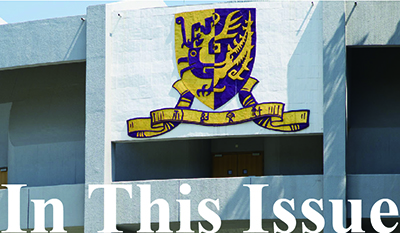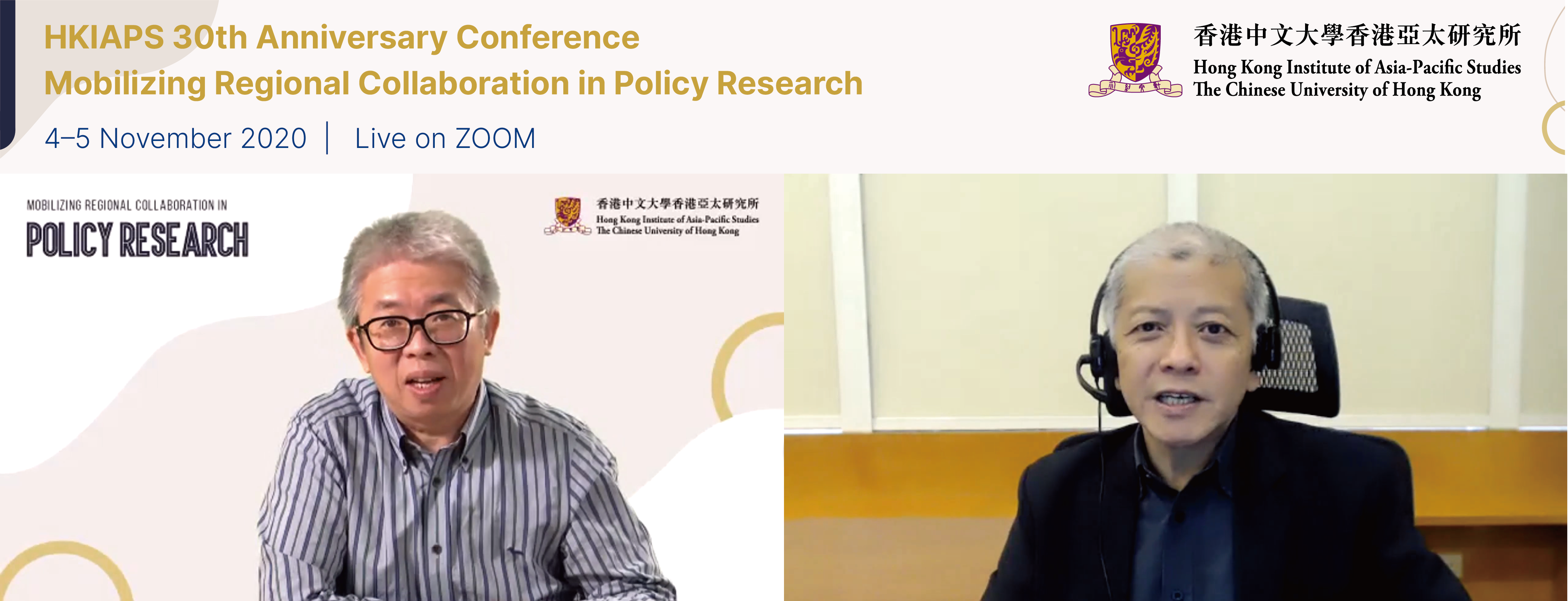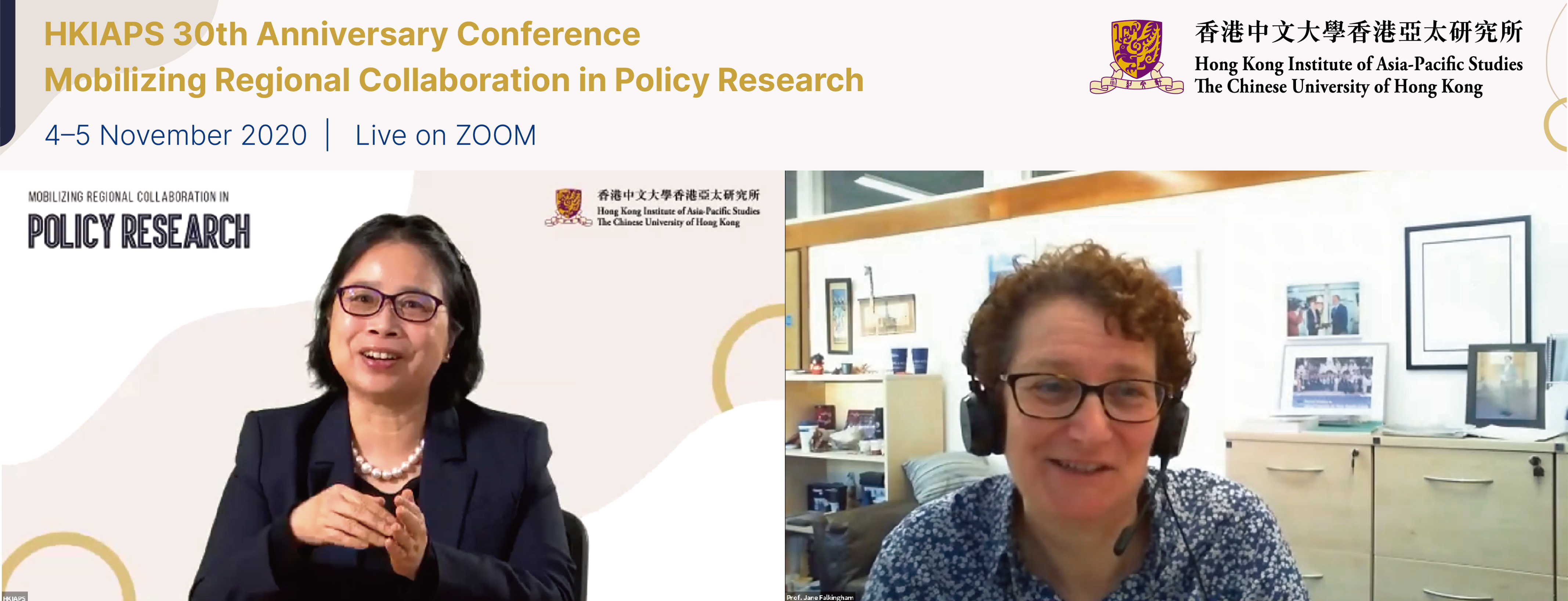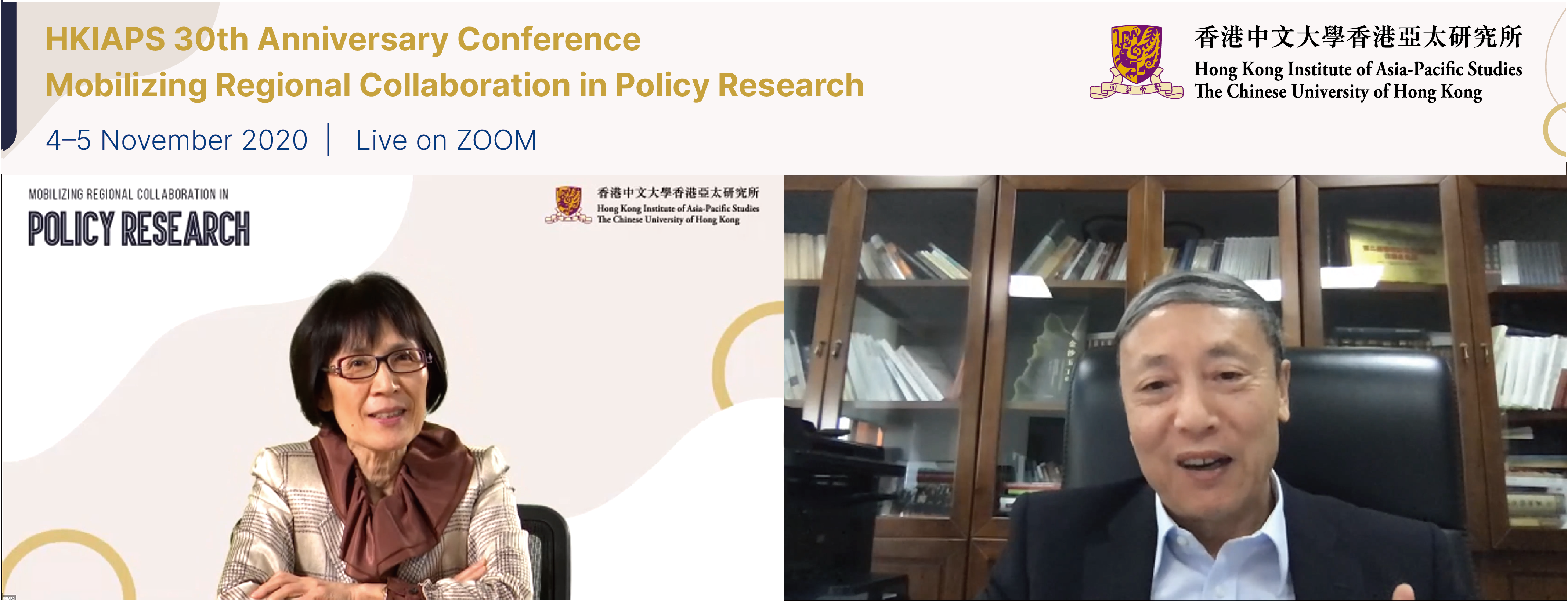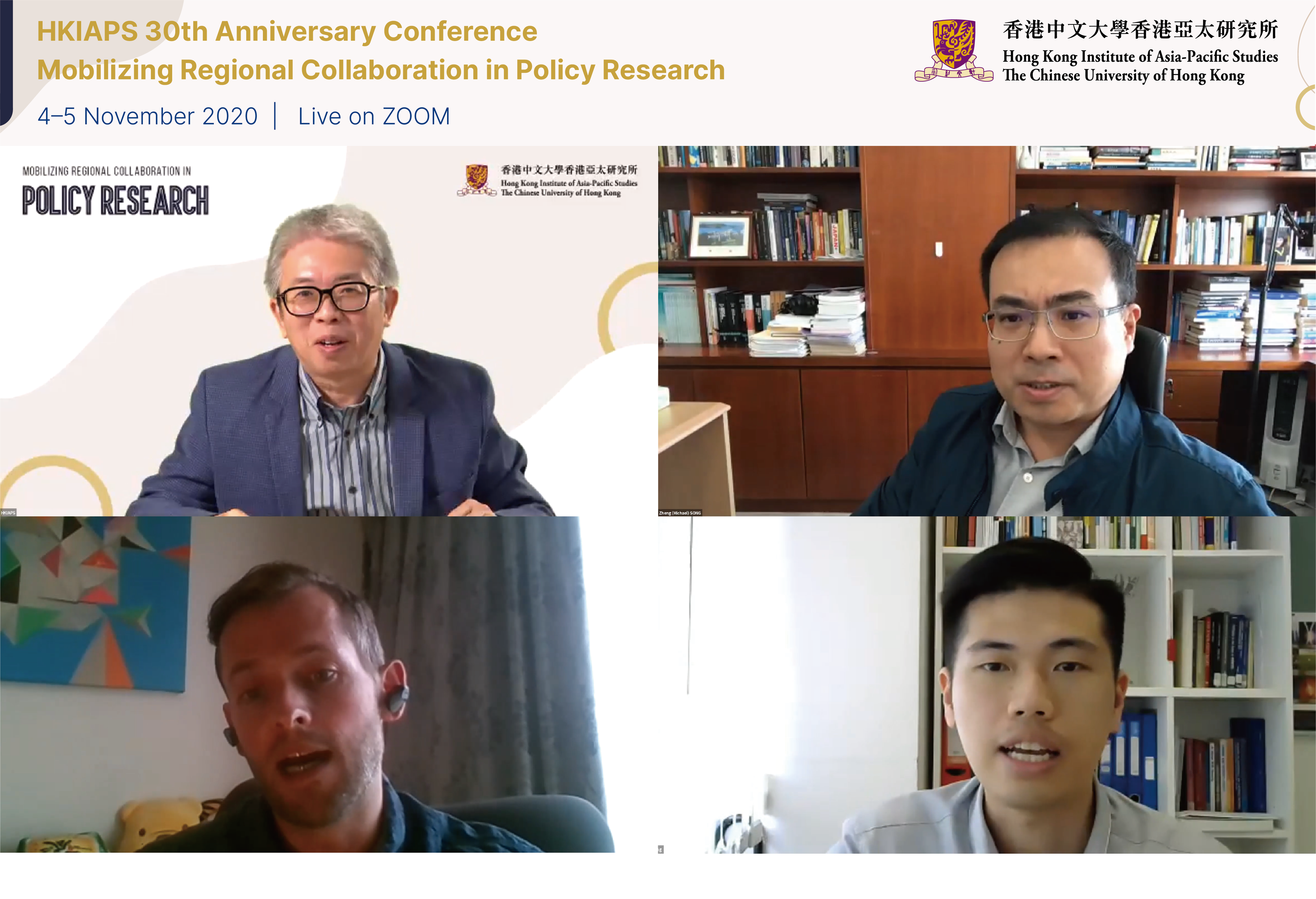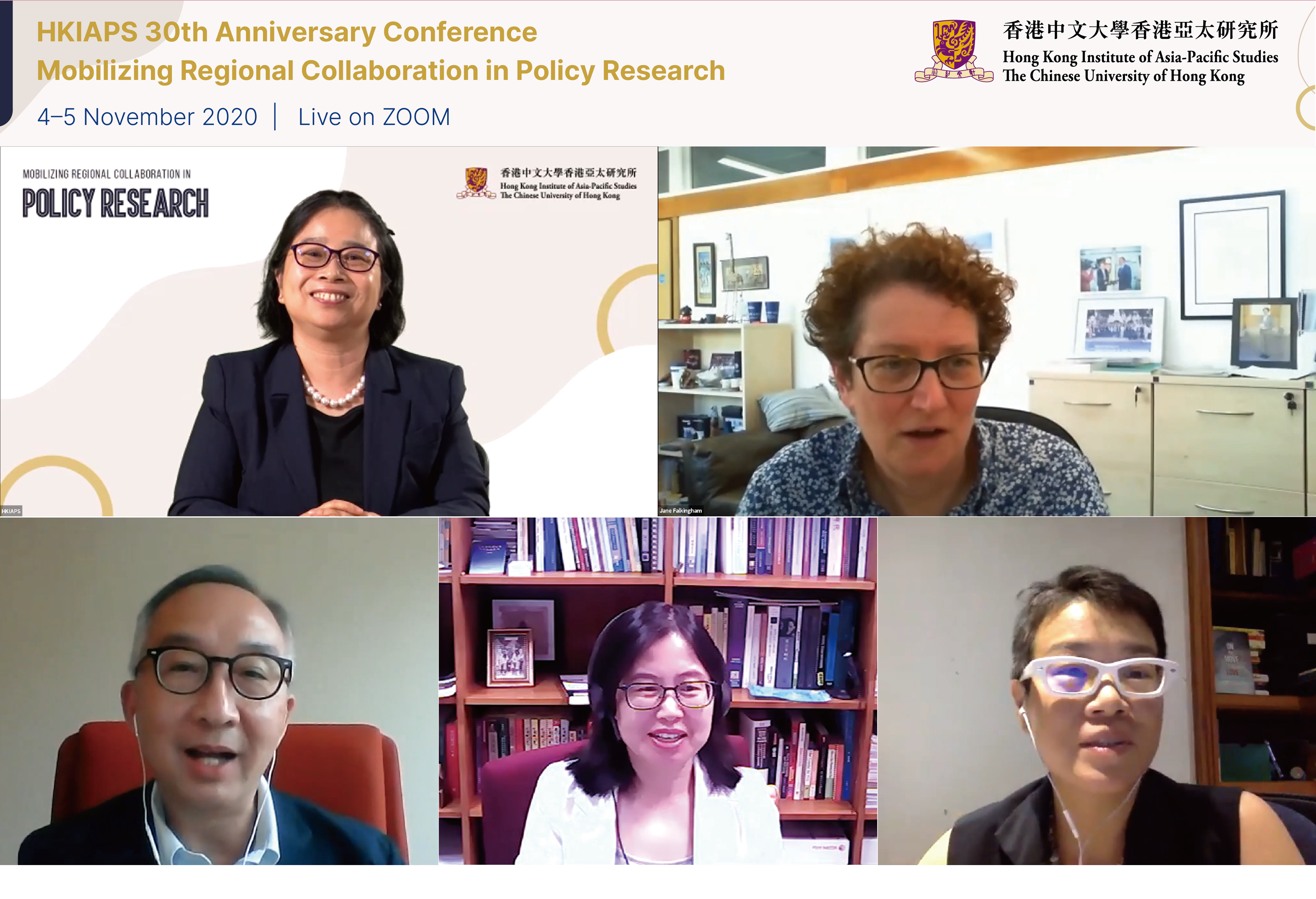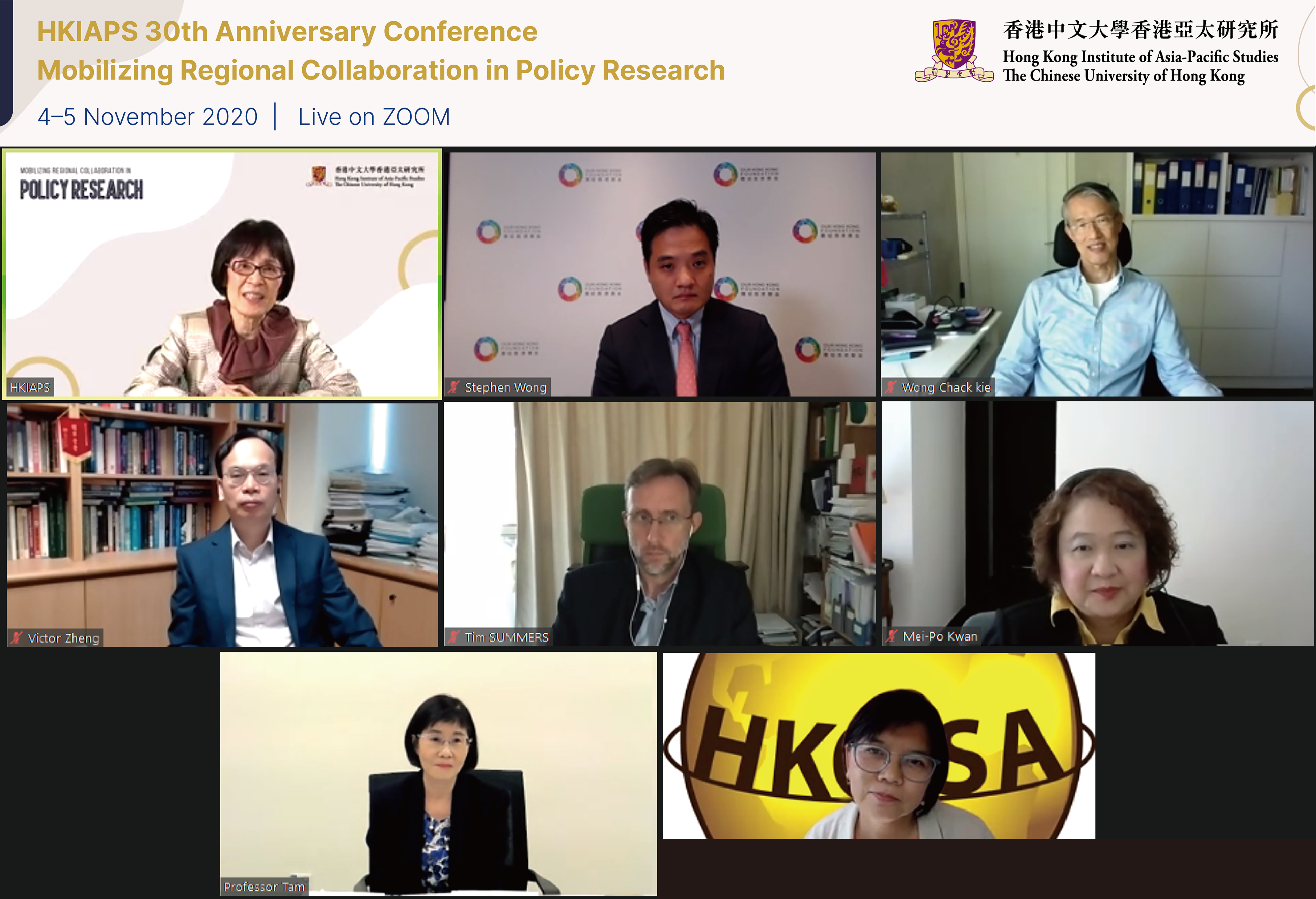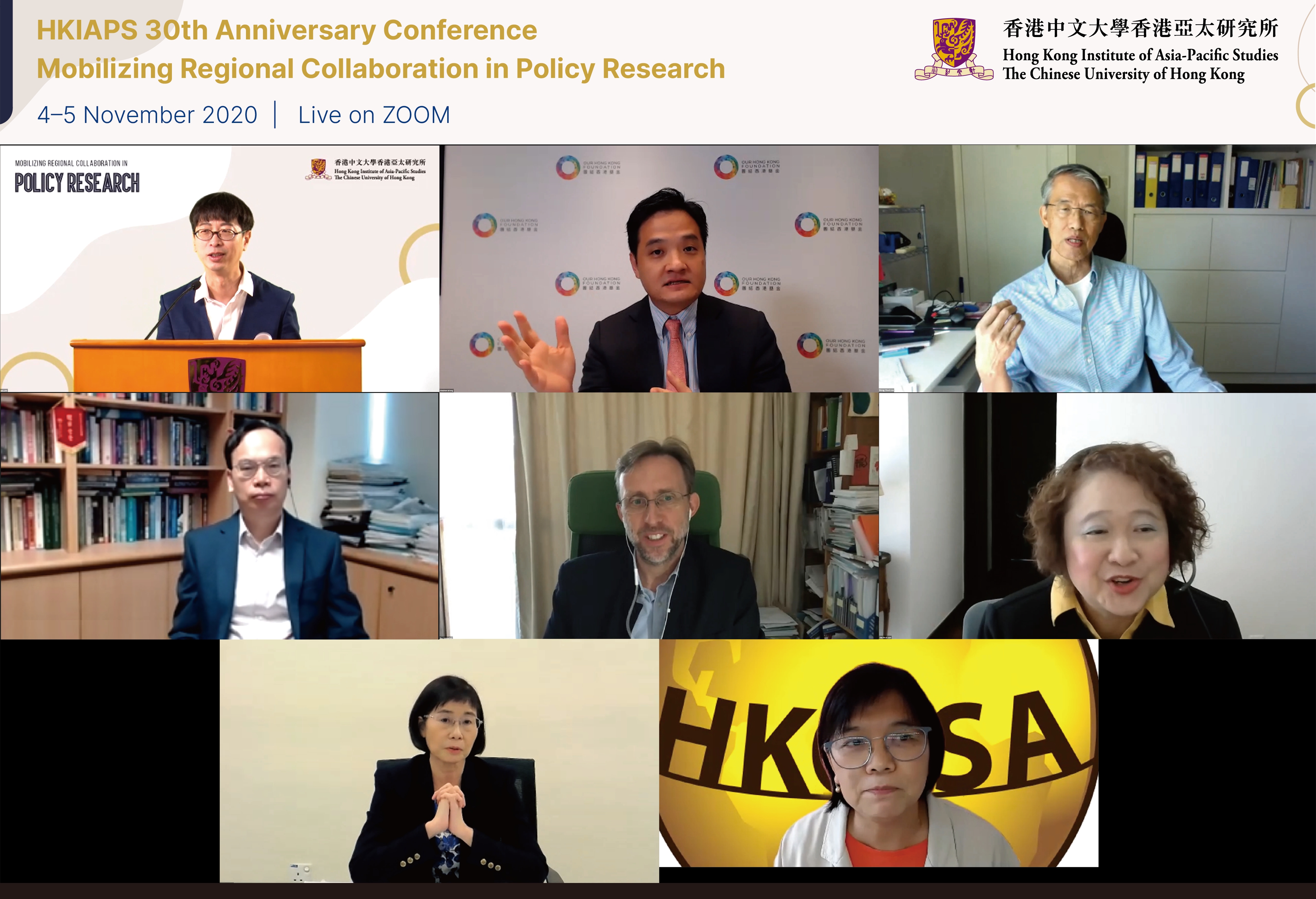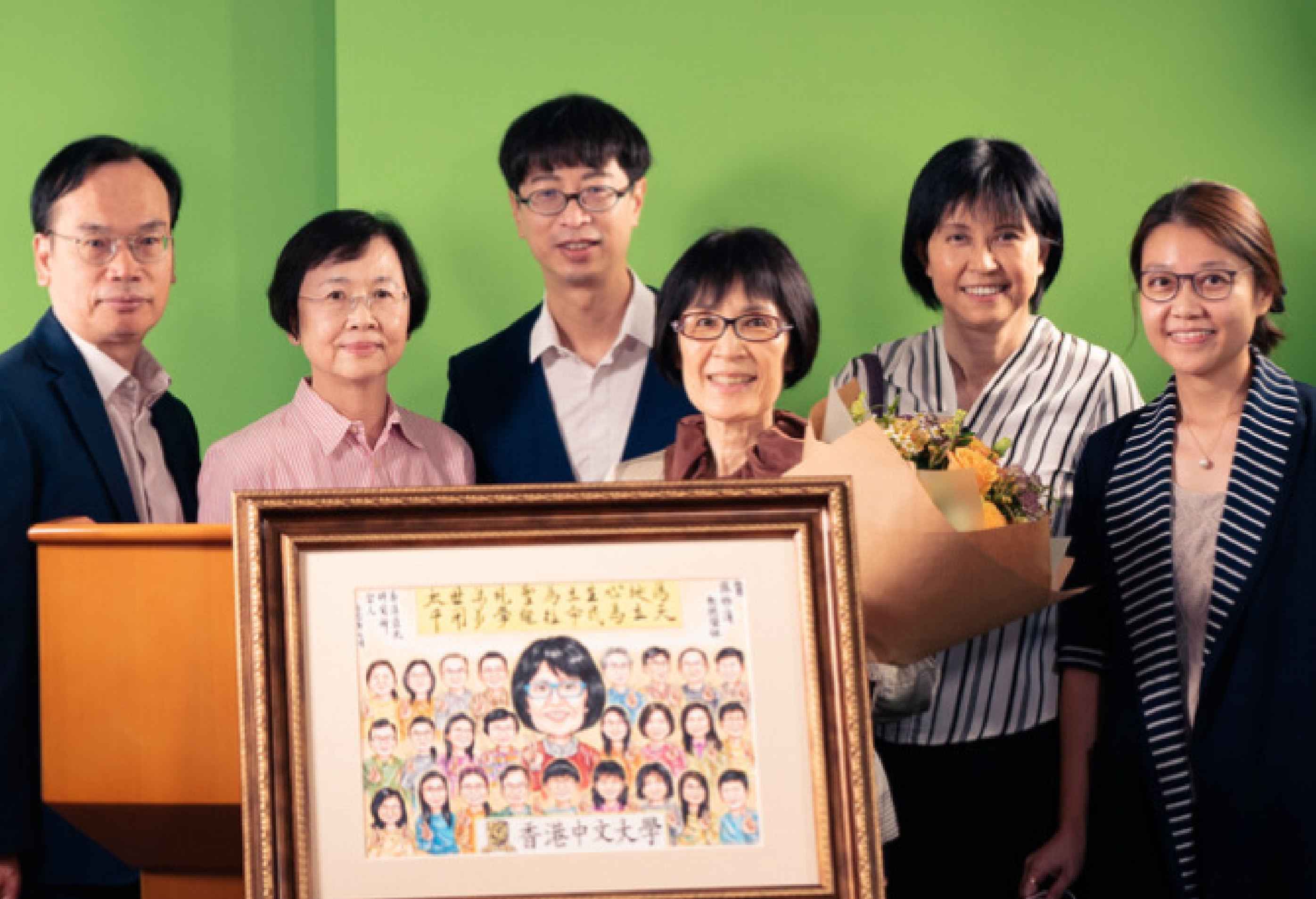
|
| Highlights |
|
|
|
HKIAPS 30th Anniversary Conference:
Mobilizing Regional Collaboration in Policy Research 4–5 November 2020 | Zoom |
|
Speakers |
|
Welcome Speech
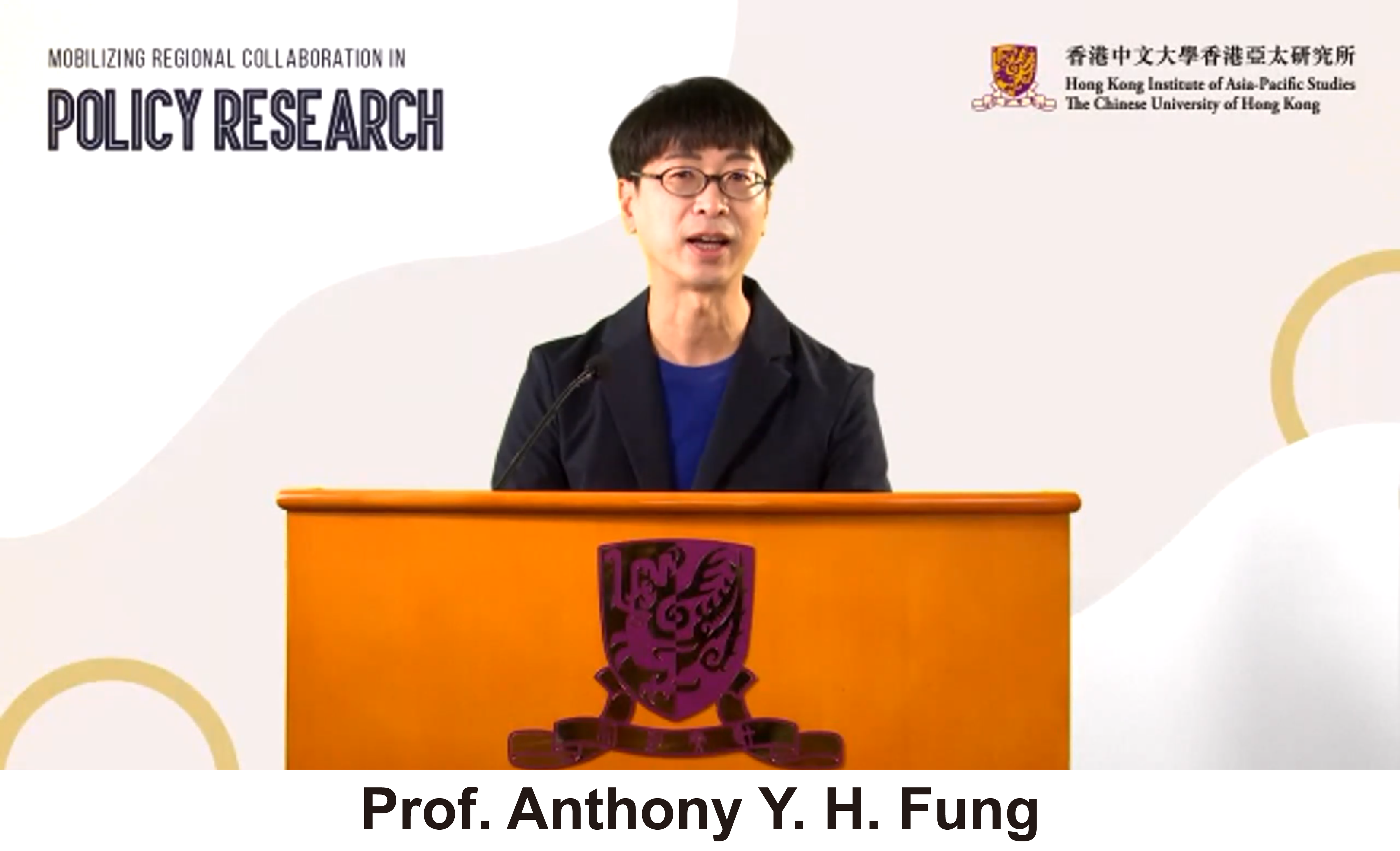 Prof. Anthony Y. H. Fung
Prof. Anthony Y. H. Fung
Director, HKIAPS, CUHK |
|
Keynote Session 1:
Great Power Geostrategic Rivalry and Its Implications for Global Policy Research in the Asia-Pacific 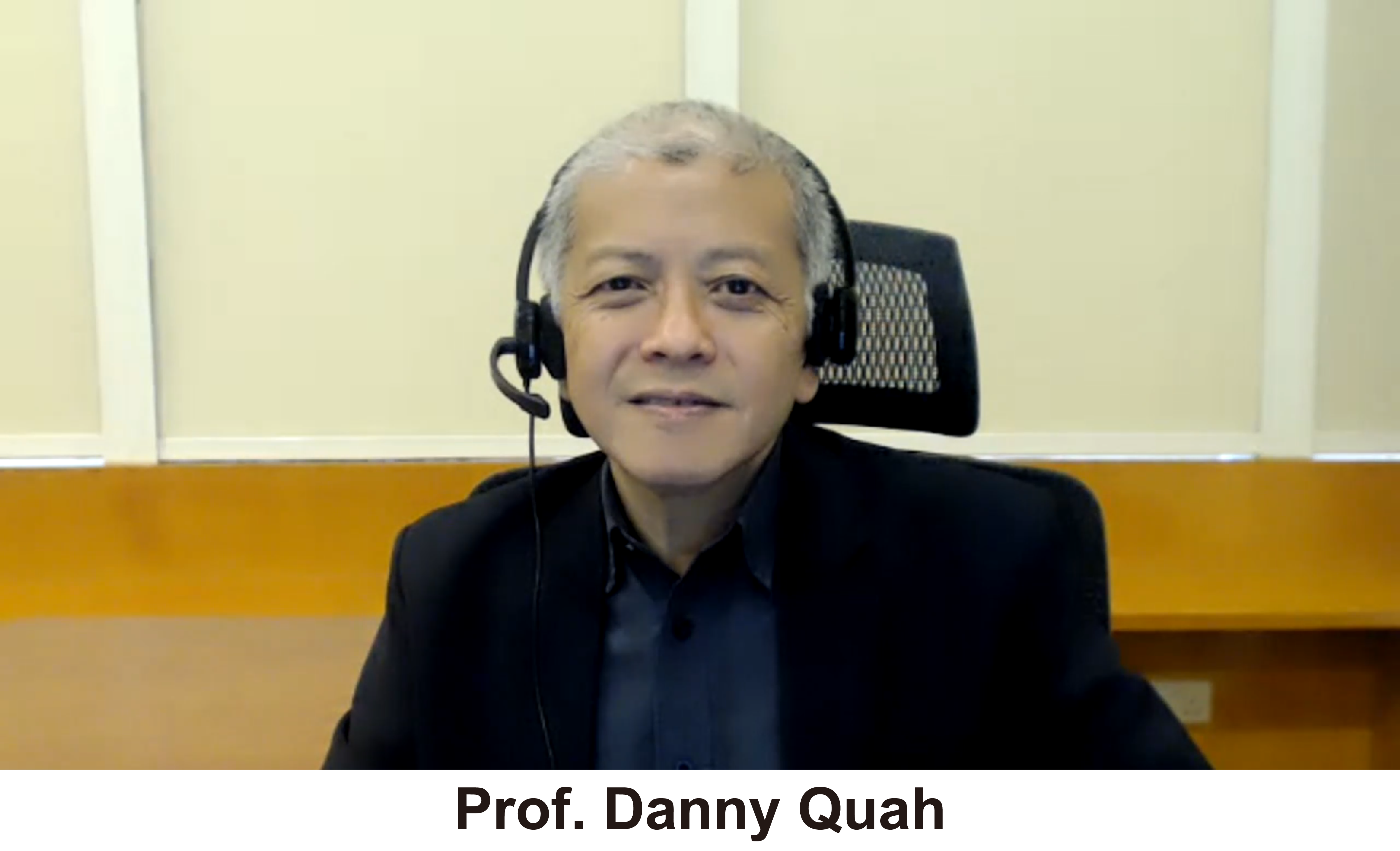 Prof. Danny Quah
Prof. Danny Quah
Dean and Li Ka Shing Professor in Economics, Lee Kuan Yew School of Public Policy, National University of Singapore |
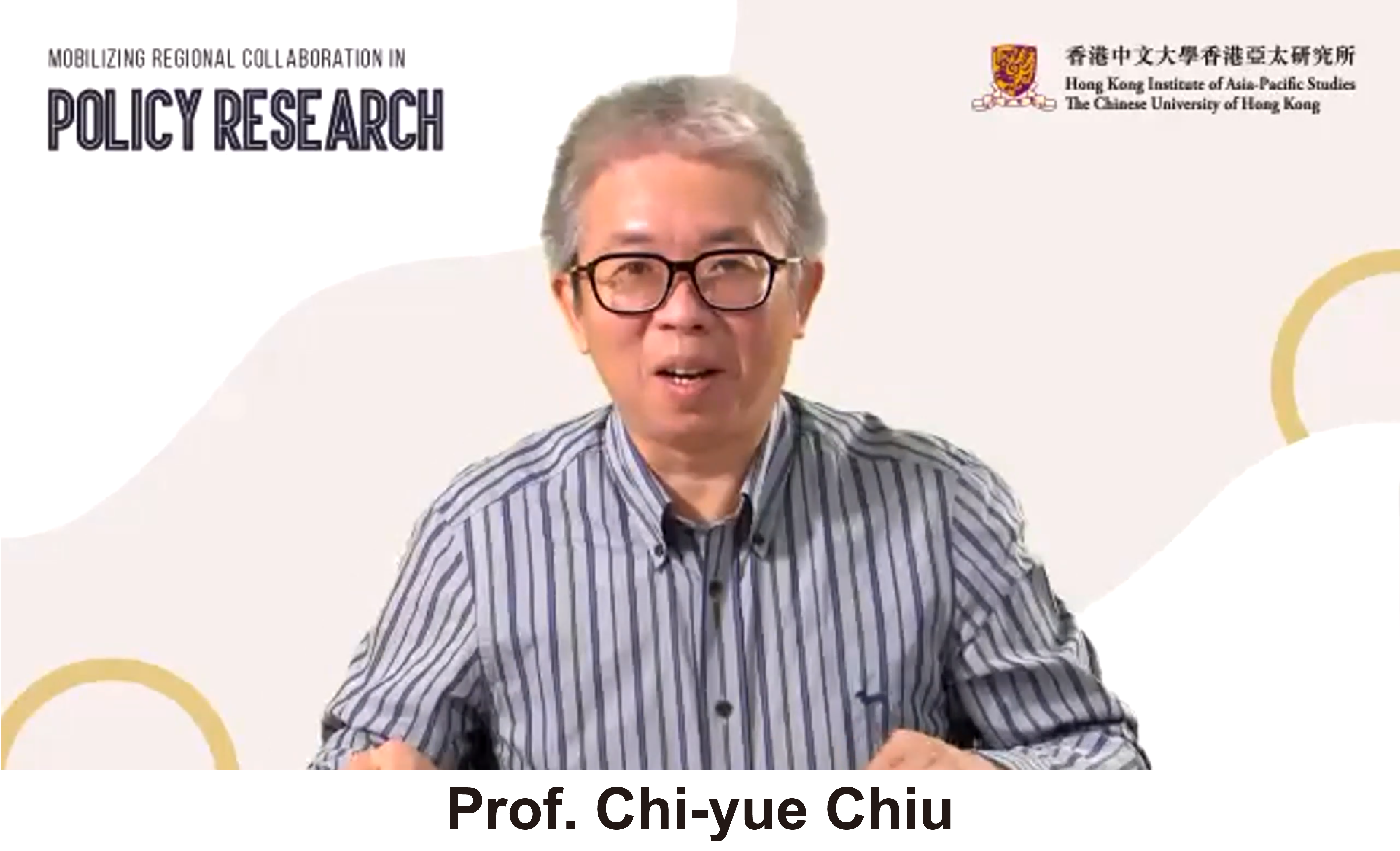 Prof. Chi-yue Chiu (Moderator)
Prof. Chi-yue Chiu (Moderator)
Dean of Social Science, CUHK |
|
Panel Session 1: Economics, International Relations, and Policy Formulation
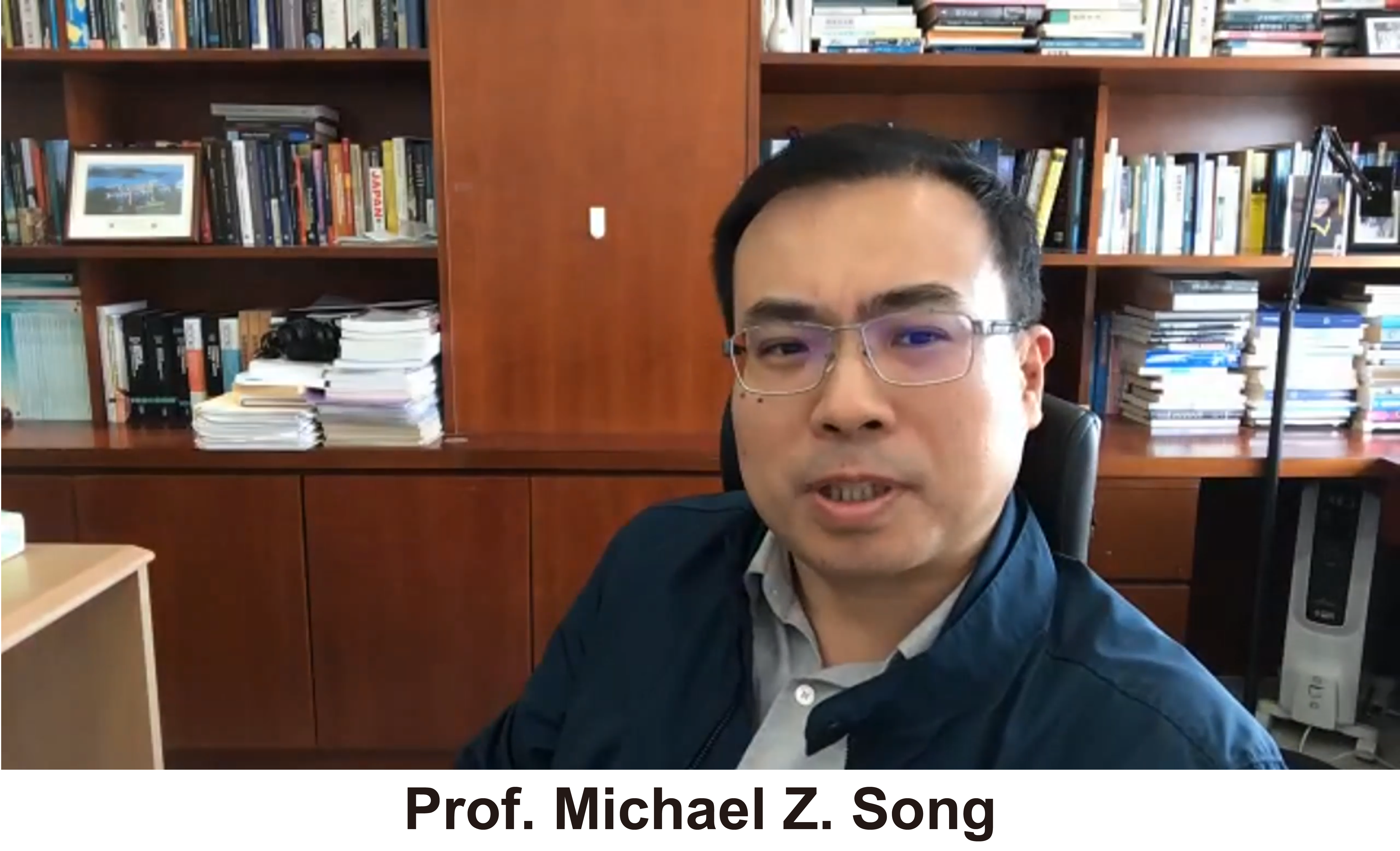 Prof. Michael Z. Song
Prof. Michael Z. Song
Professor, Department of Economics, CUHK |
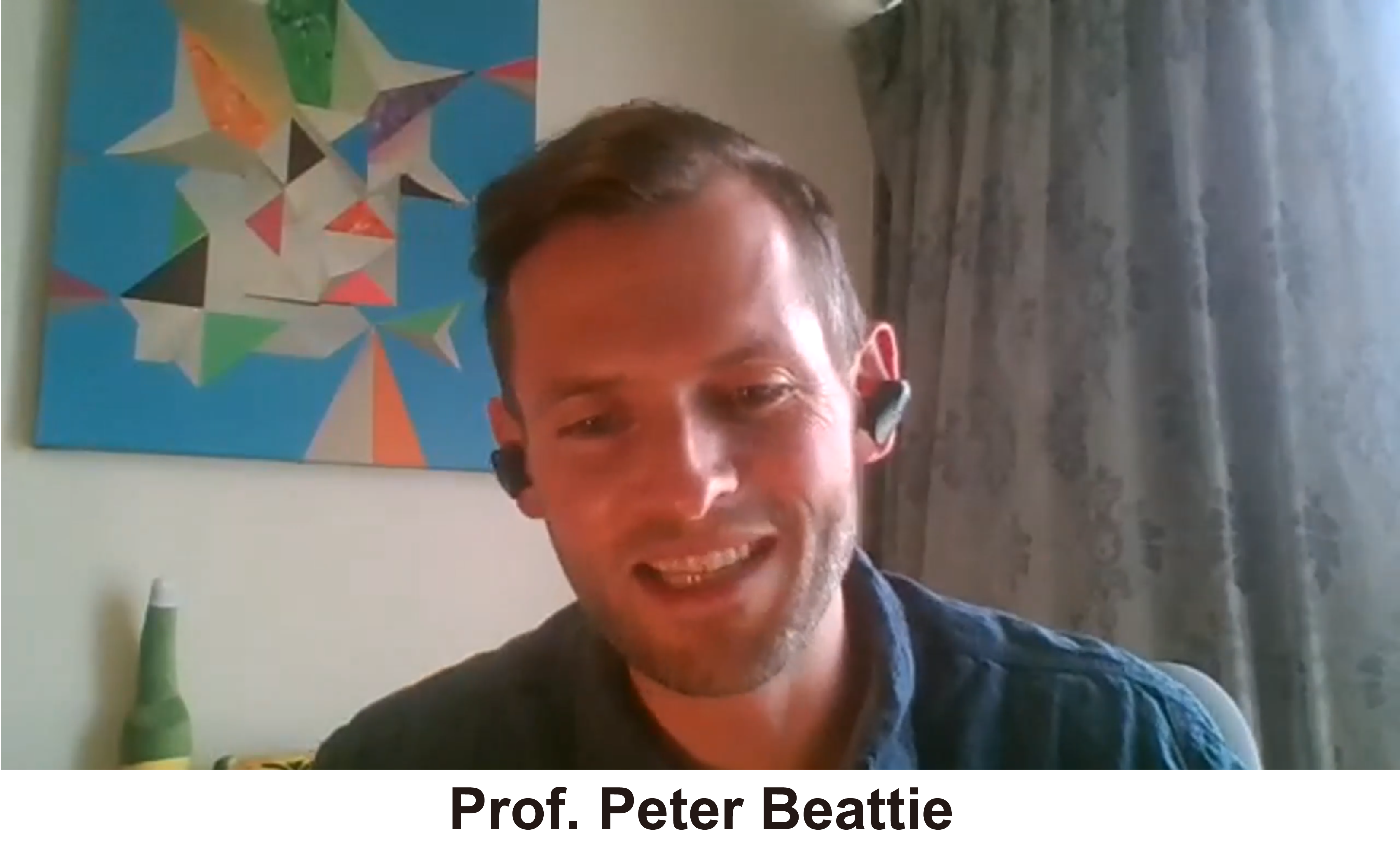 Prof. Peter Beattie
Prof. Peter Beattie
Assistant Professor, Faculty of Social Science, CUHK |
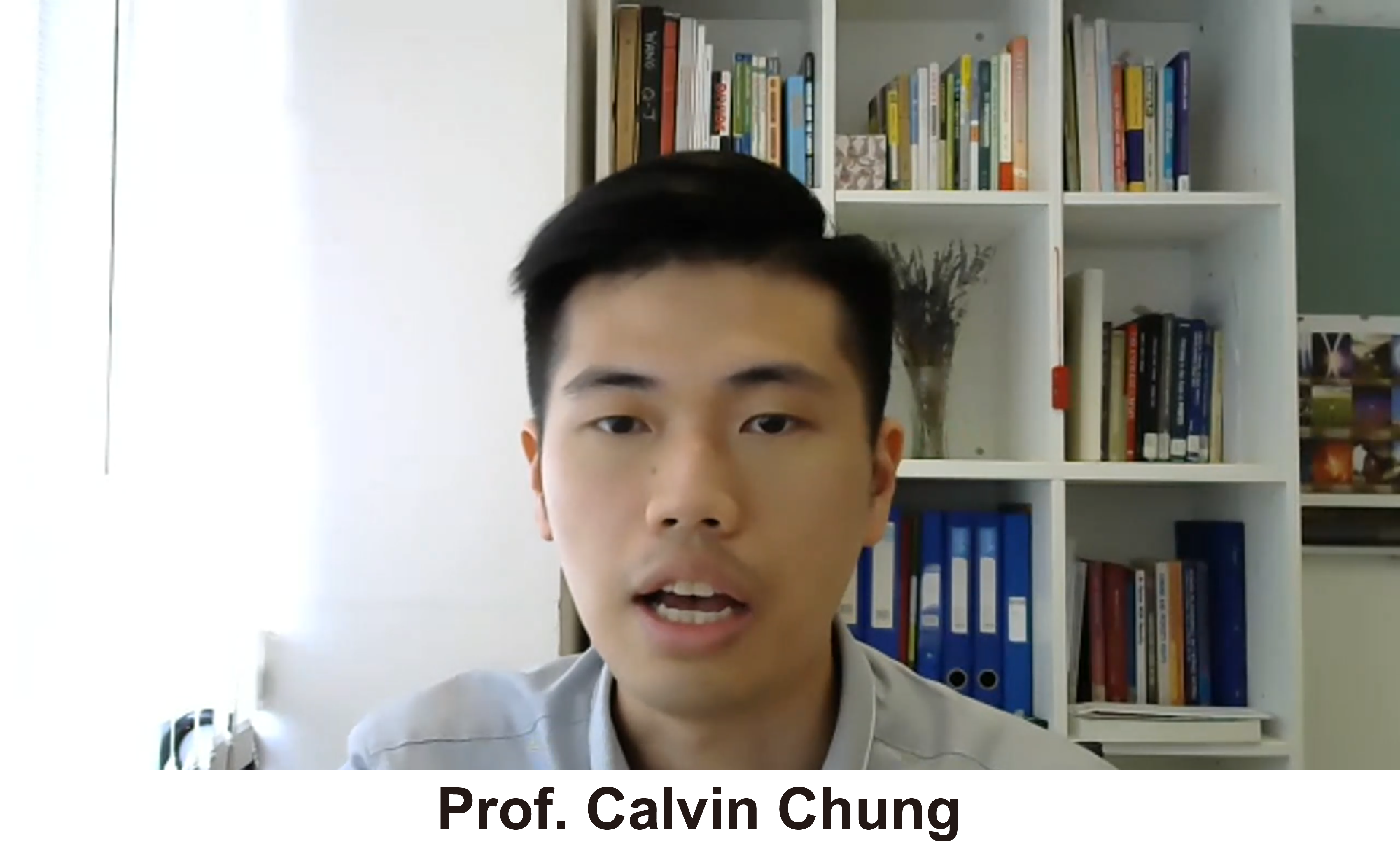 Prof. Calvin Chung
Prof. Calvin Chung
Assistant Professor, Department of Geography and Resource Management, CUHK |
|
Keynote Session 2: Demographic Changes in the Asia-Pacific Region and its Implications for Policy
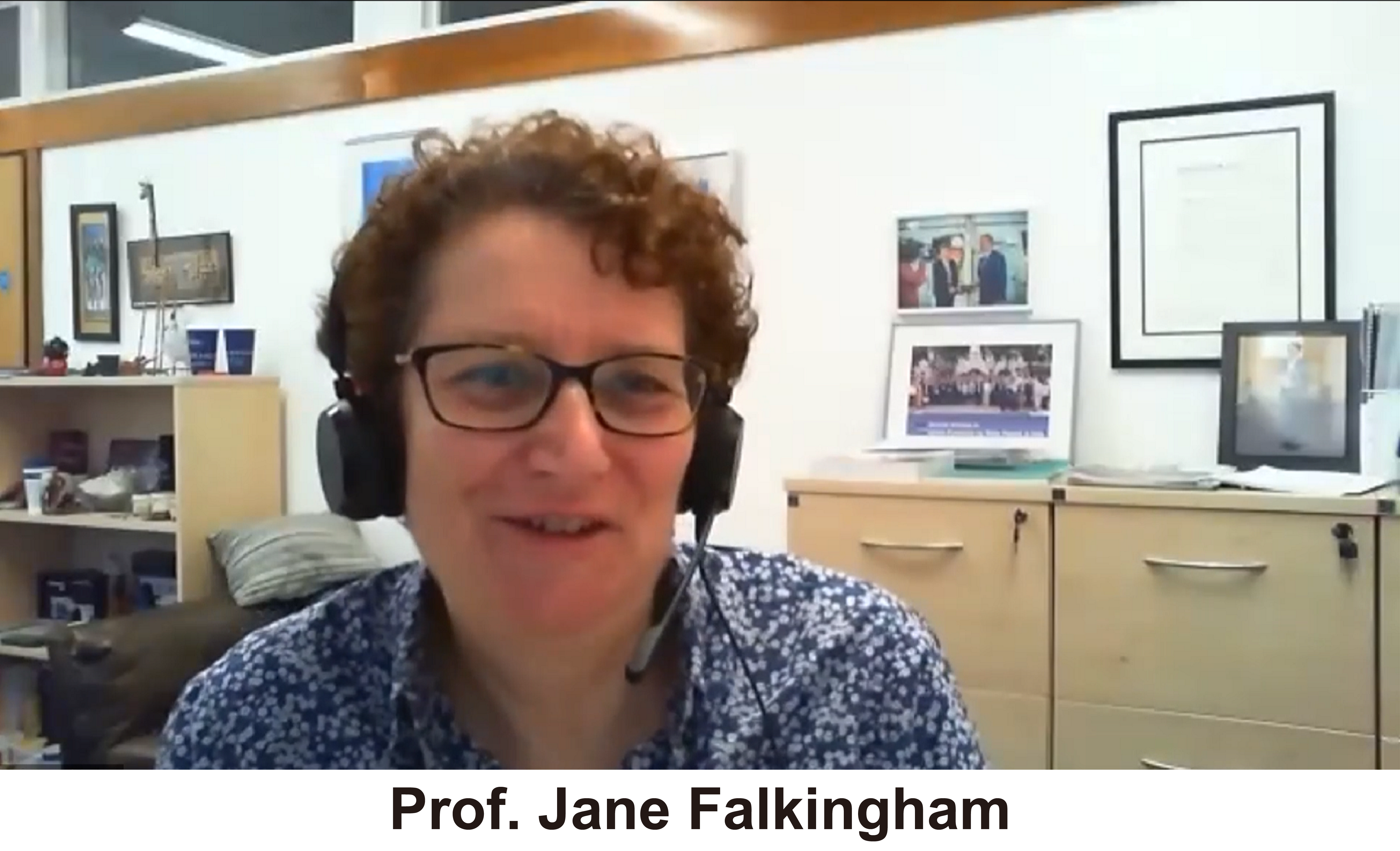 Prof. Jane Falkingham
Prof. Jane Falkingham
Dean, Faculty of Social Sciences, University of Southampton, United Kingdom |
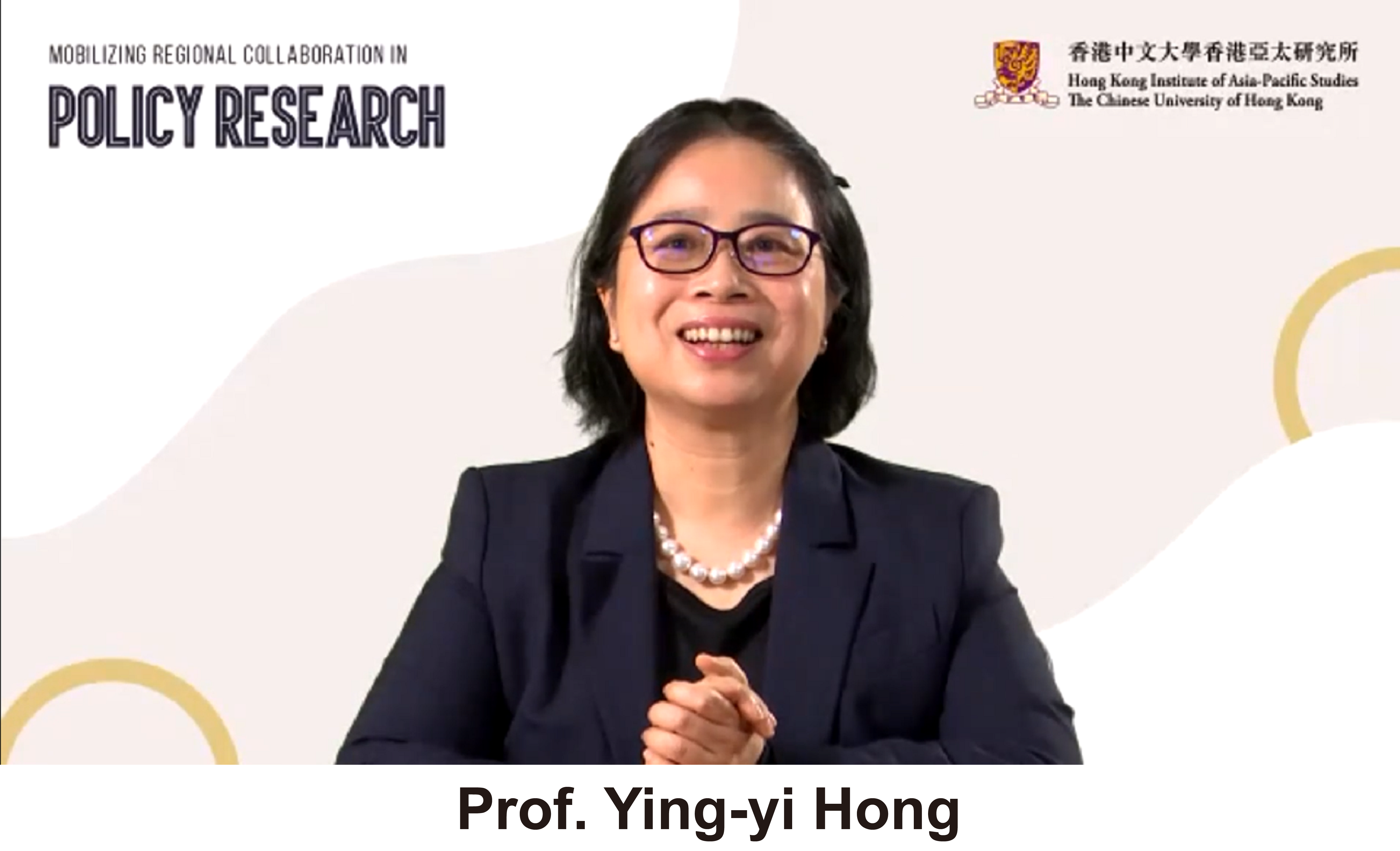 Prof. Ying-yi Hong (Moderator)
Prof. Ying-yi Hong (Moderator)
Associate Director, HKIAPS, CUHK |
|
Panel Session 2: Population and Cultural Diversity
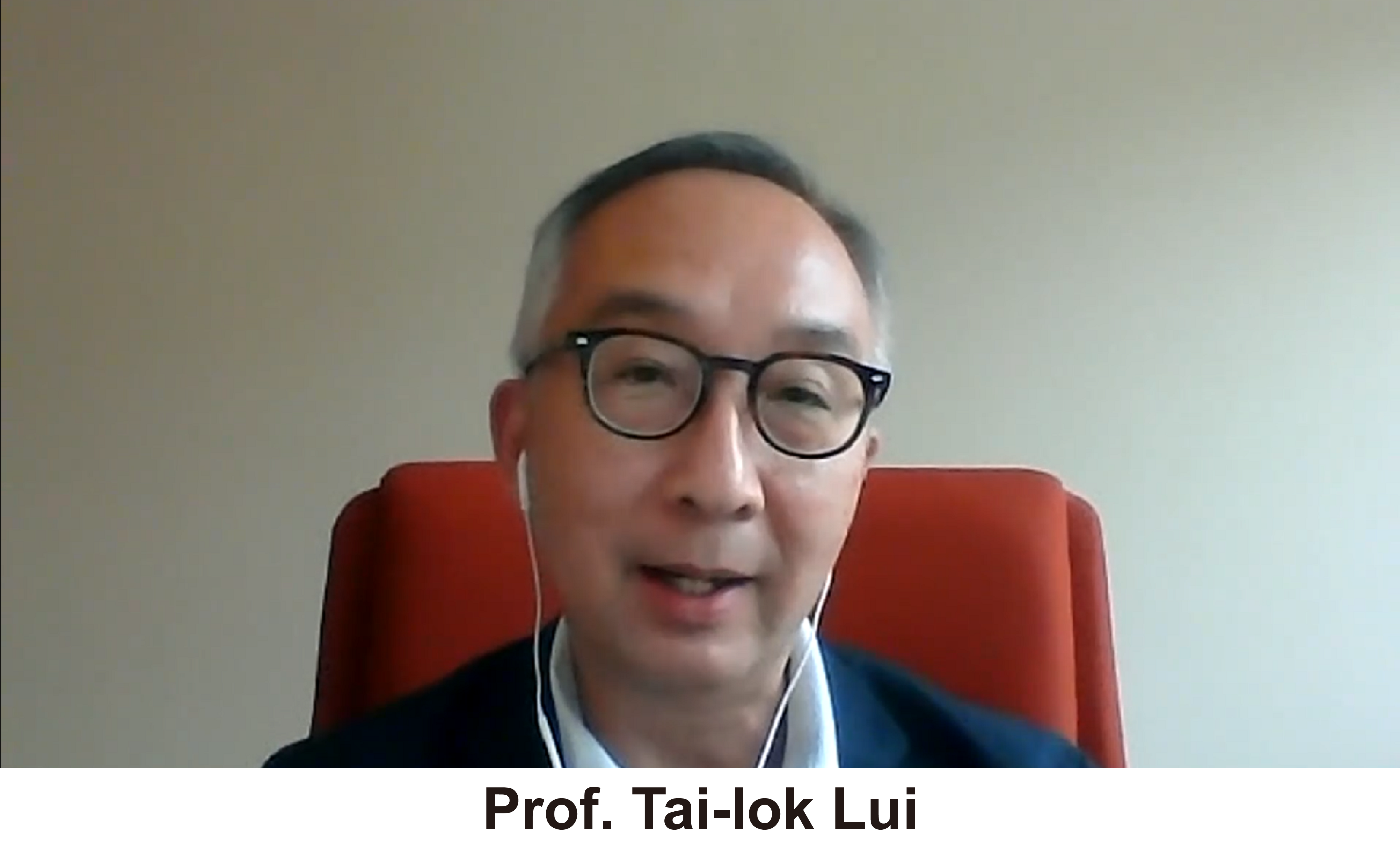 Prof. Tai-lok Lui
Prof. Tai-lok Lui
Vice President (Research and Development), The Education University of Hong Kong |
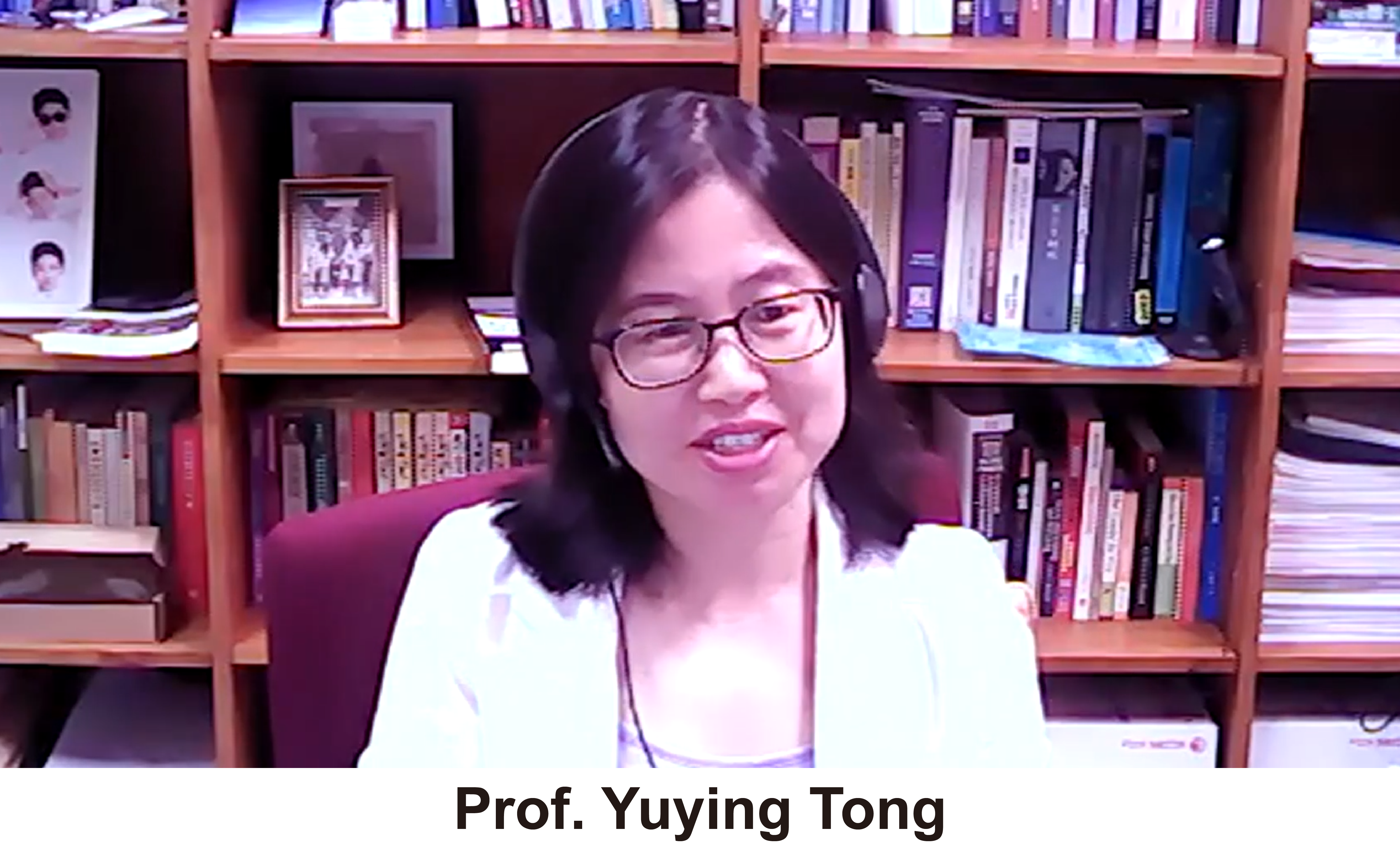 Prof. Yuying Tong
Prof. Yuying Tong
Professor, Department of Sociology, CUHK |
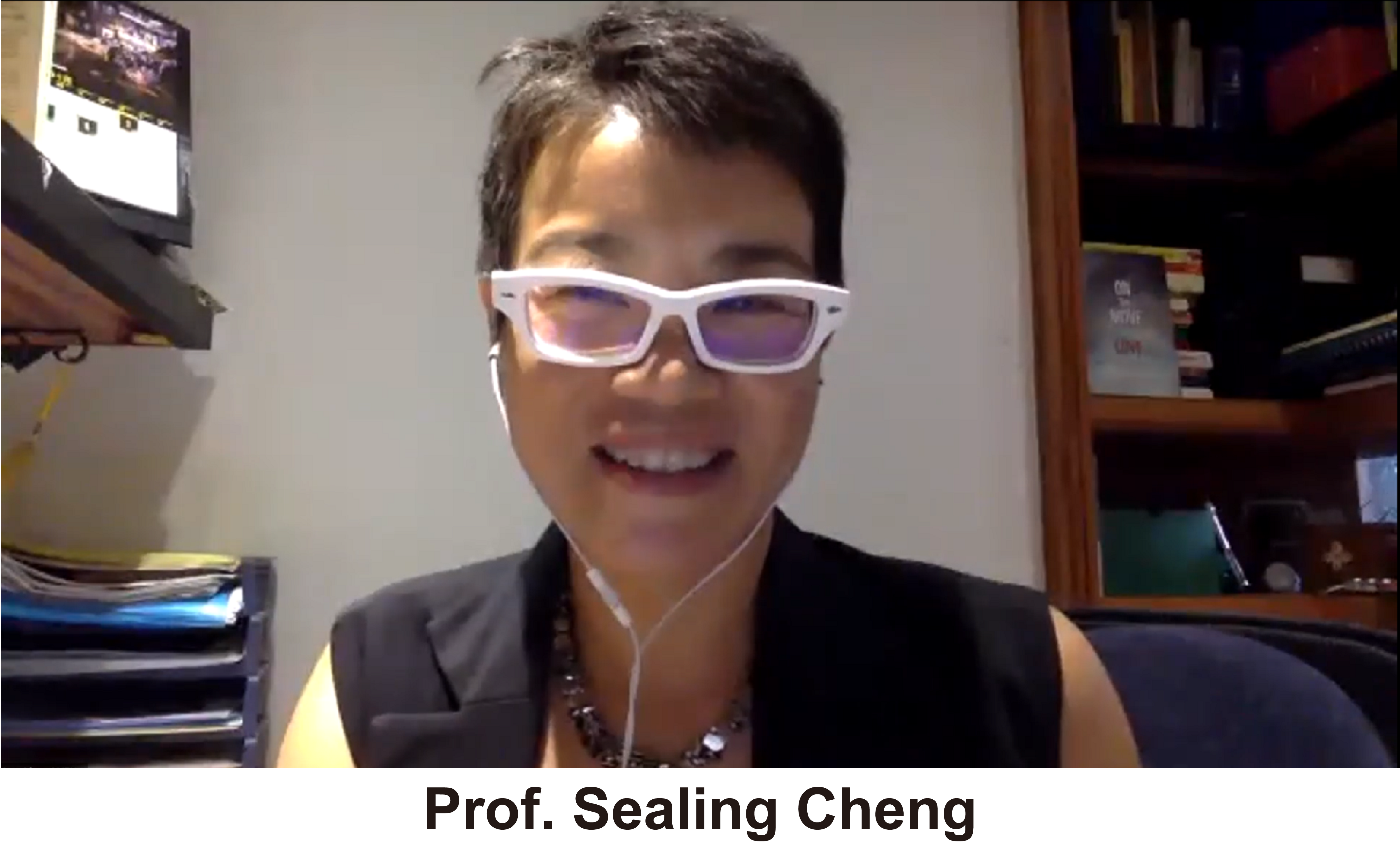 Prof. Sealing Cheng
Prof. Sealing Cheng
Associate Professor, Department of Anthropology, CUHK |
|
Keynote Session 3: Policy Research in China - From an Interdisciplinary Perspective
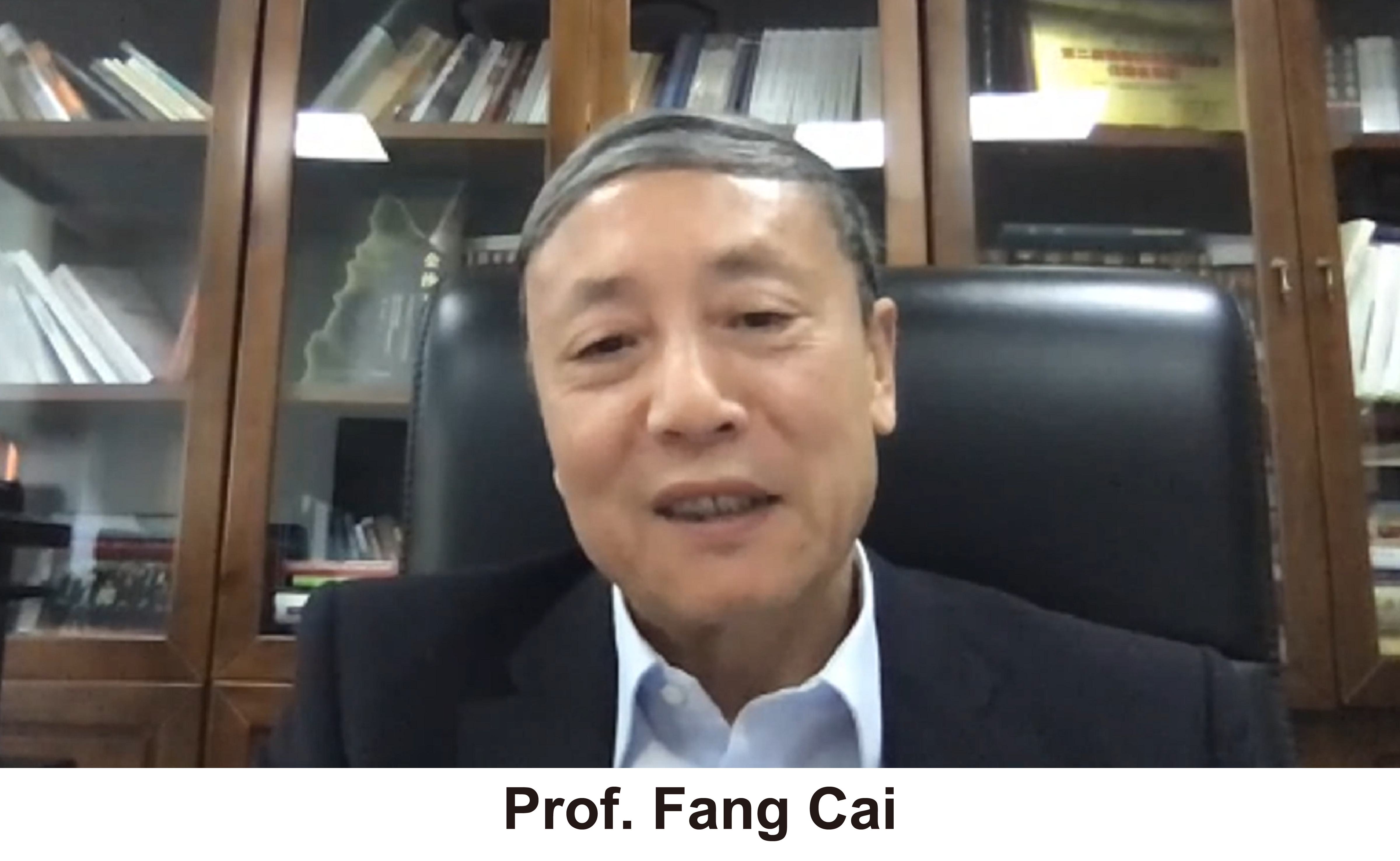 Prof. Fang Cai
Prof. Fang Cai
Vice President, Chinese Academy of Social Sciences |
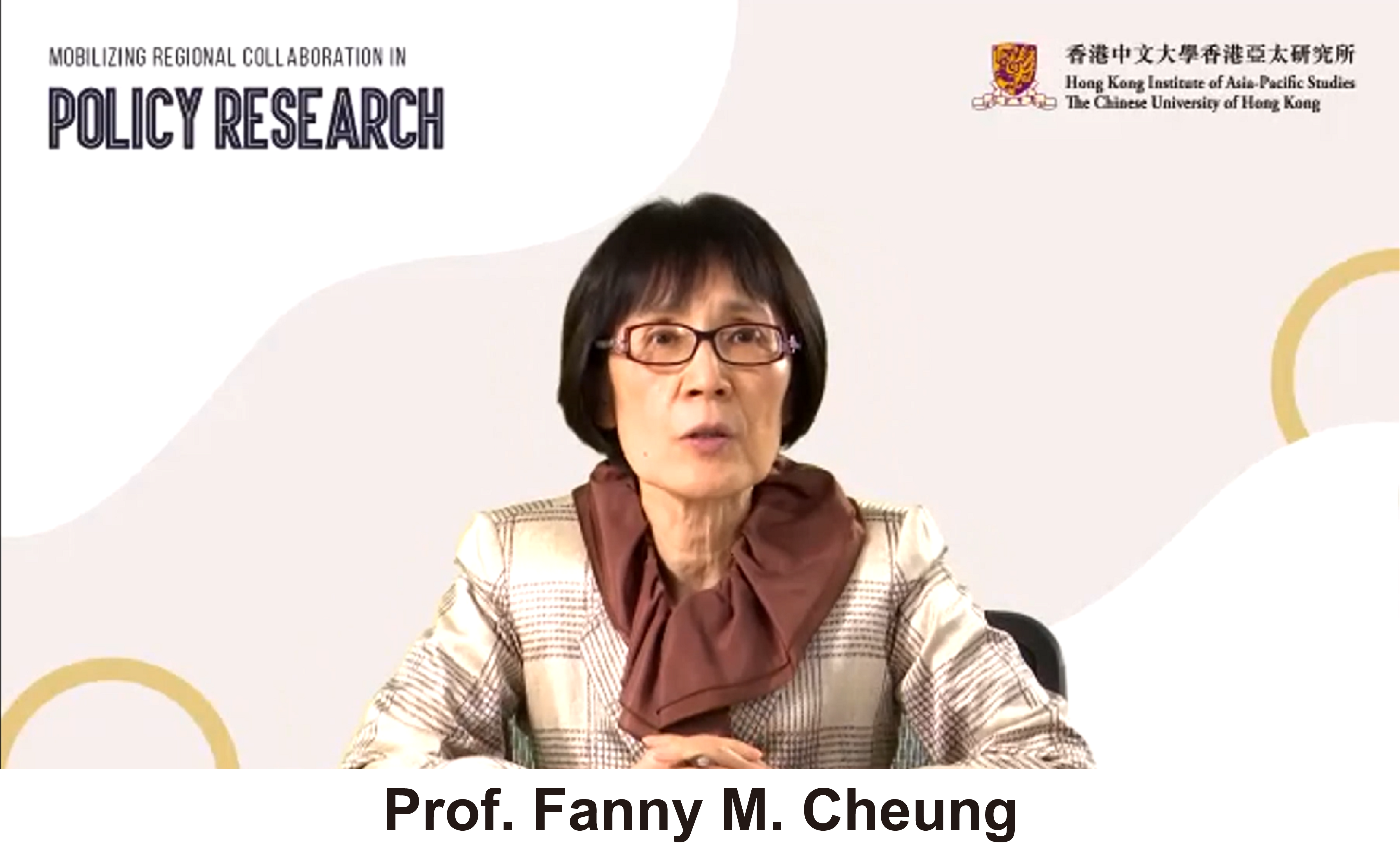 Prof. Fanny M. Cheung (Moderator)
Prof. Fanny M. Cheung (Moderator)
Senior Advisor, Faculty of Social Science and HKIAPS, CUHK |
|
Roundtable Session: Bridging Policy and Research in Future Collaborations
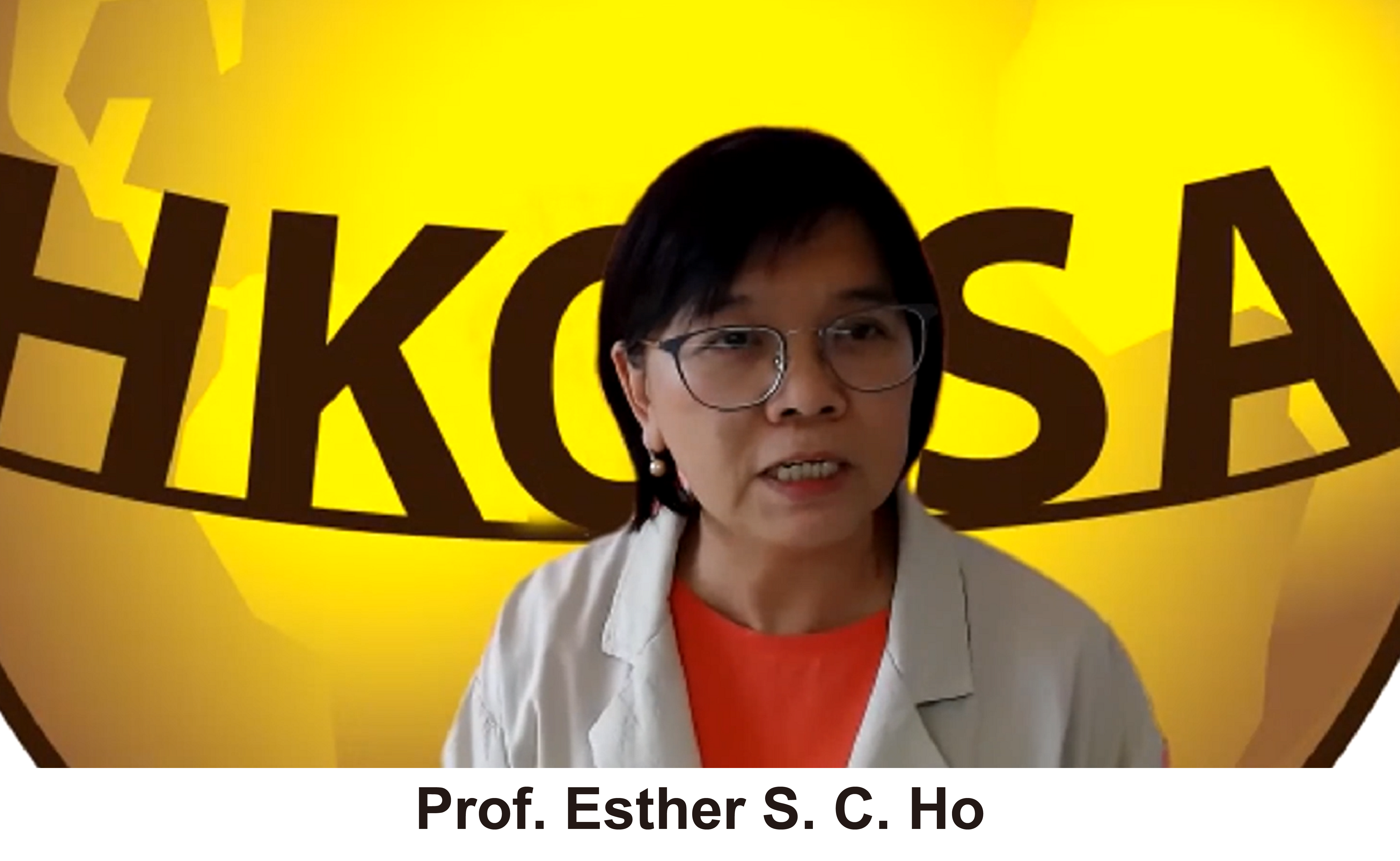 Prof. Esther S. C. Ho
Prof. Esther S. C. Ho
Director, Hong Kong Centre for International Student Assessment, CUHK |
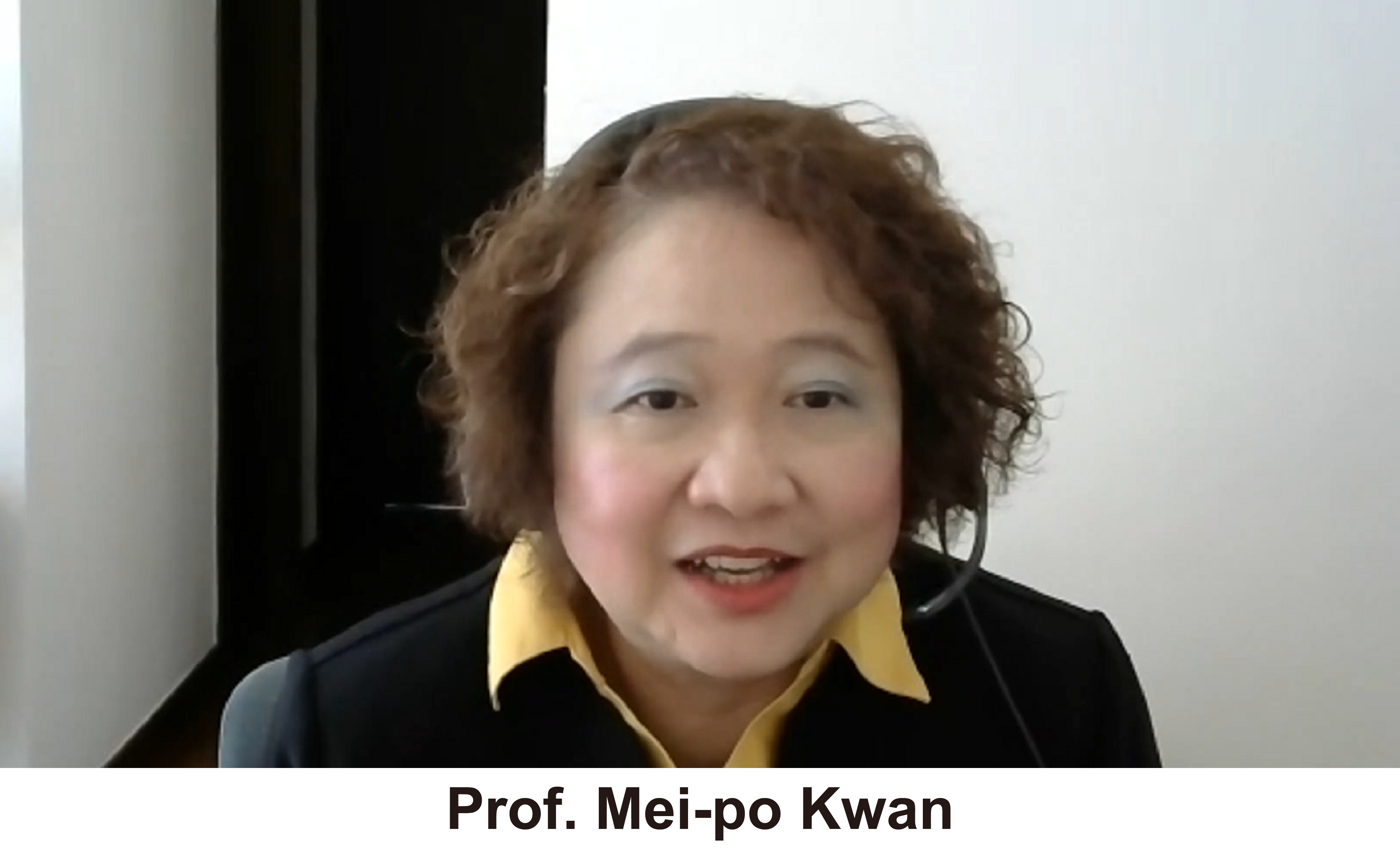 Prof. Mei-po Kwan
Prof. Mei-po Kwan
Choh-Ming Li Professor of Geography and Resource Management, CUHK |
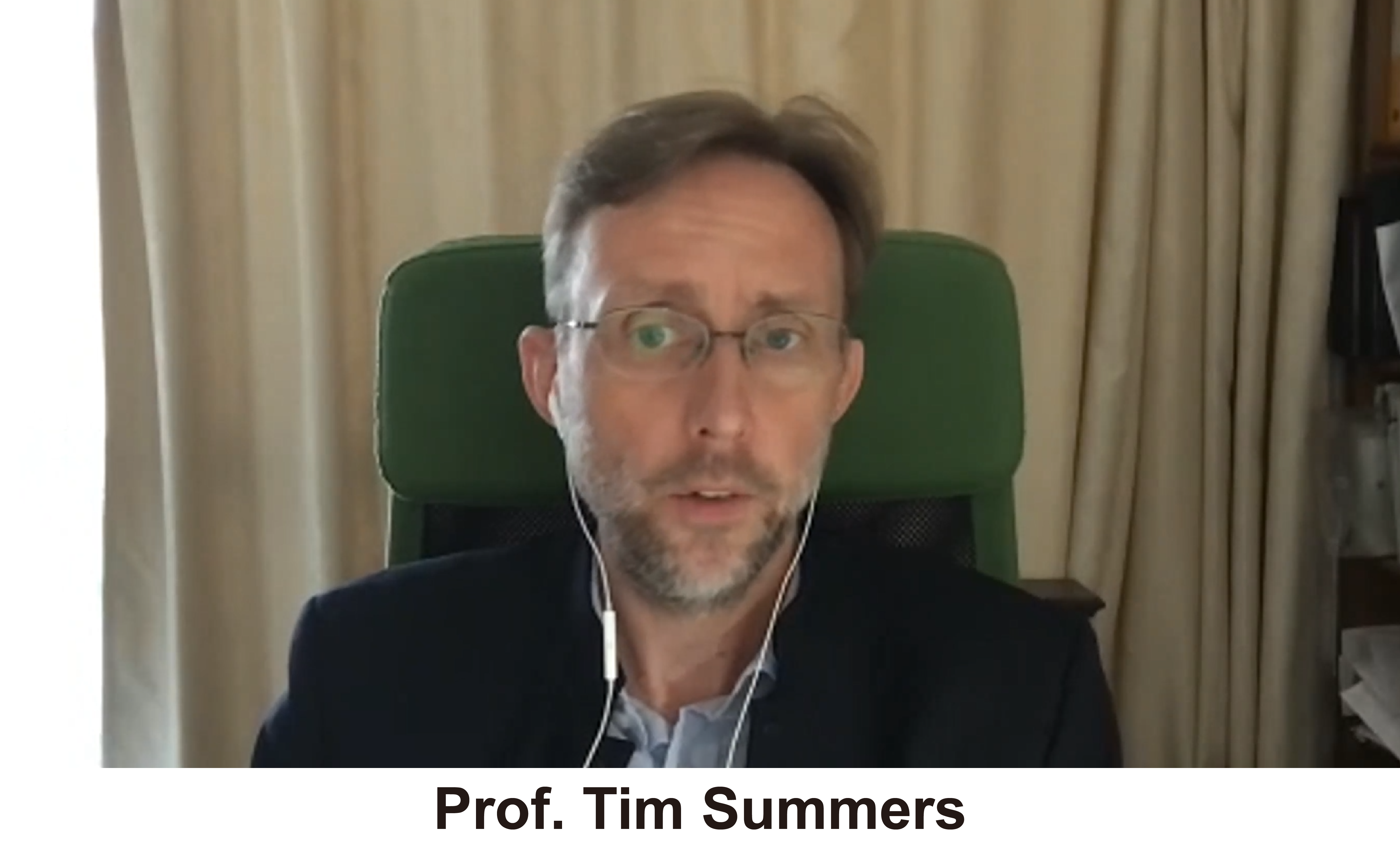 Prof. Tim Summers
Prof. Tim Summers
Lecturer, Centre for China Studies, CUHK |
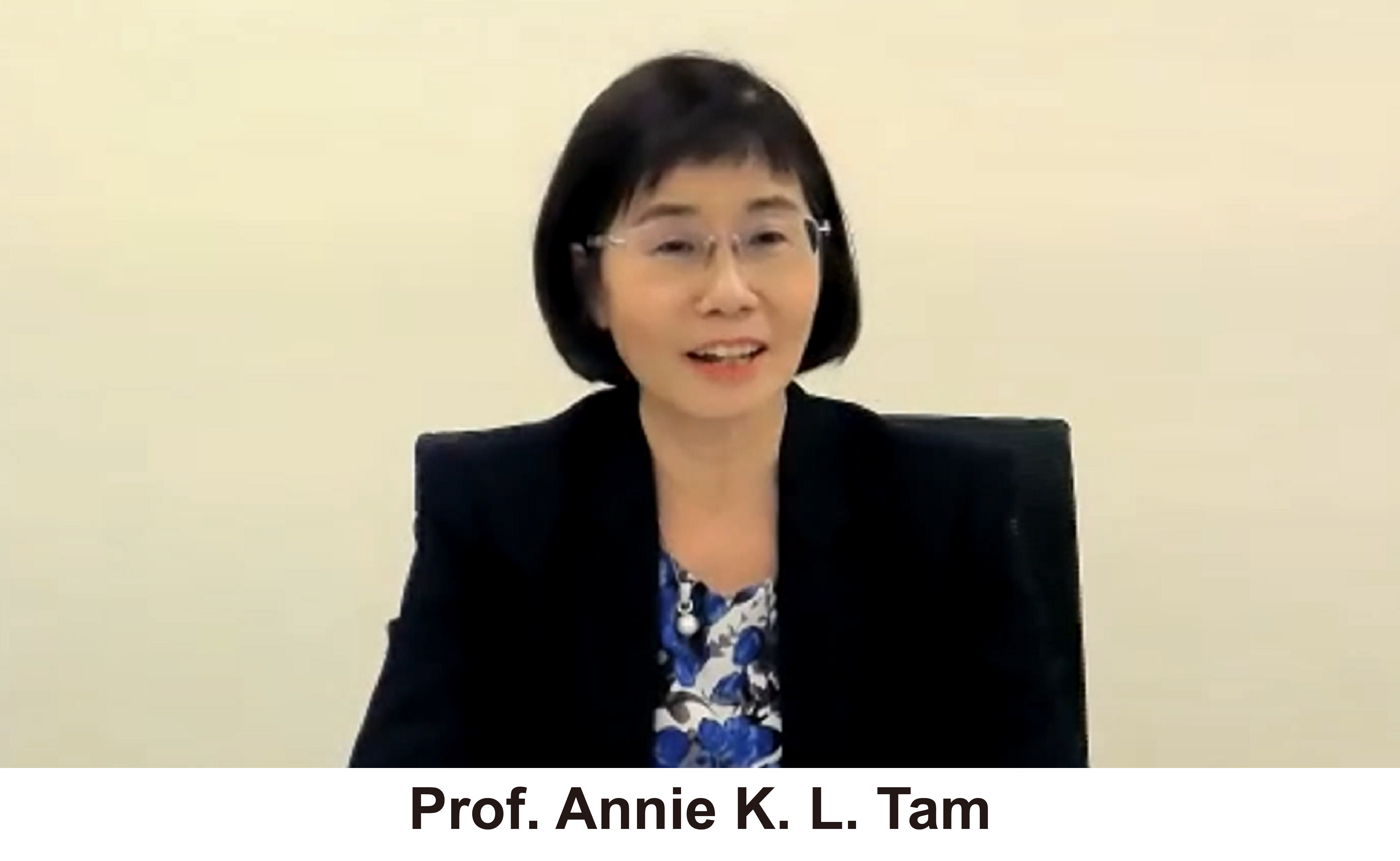 Prof. Annie K. L. Tam
Prof. Annie K. L. Tam
Honorary Senior Research Fellow, HKIAPS, CUHK |
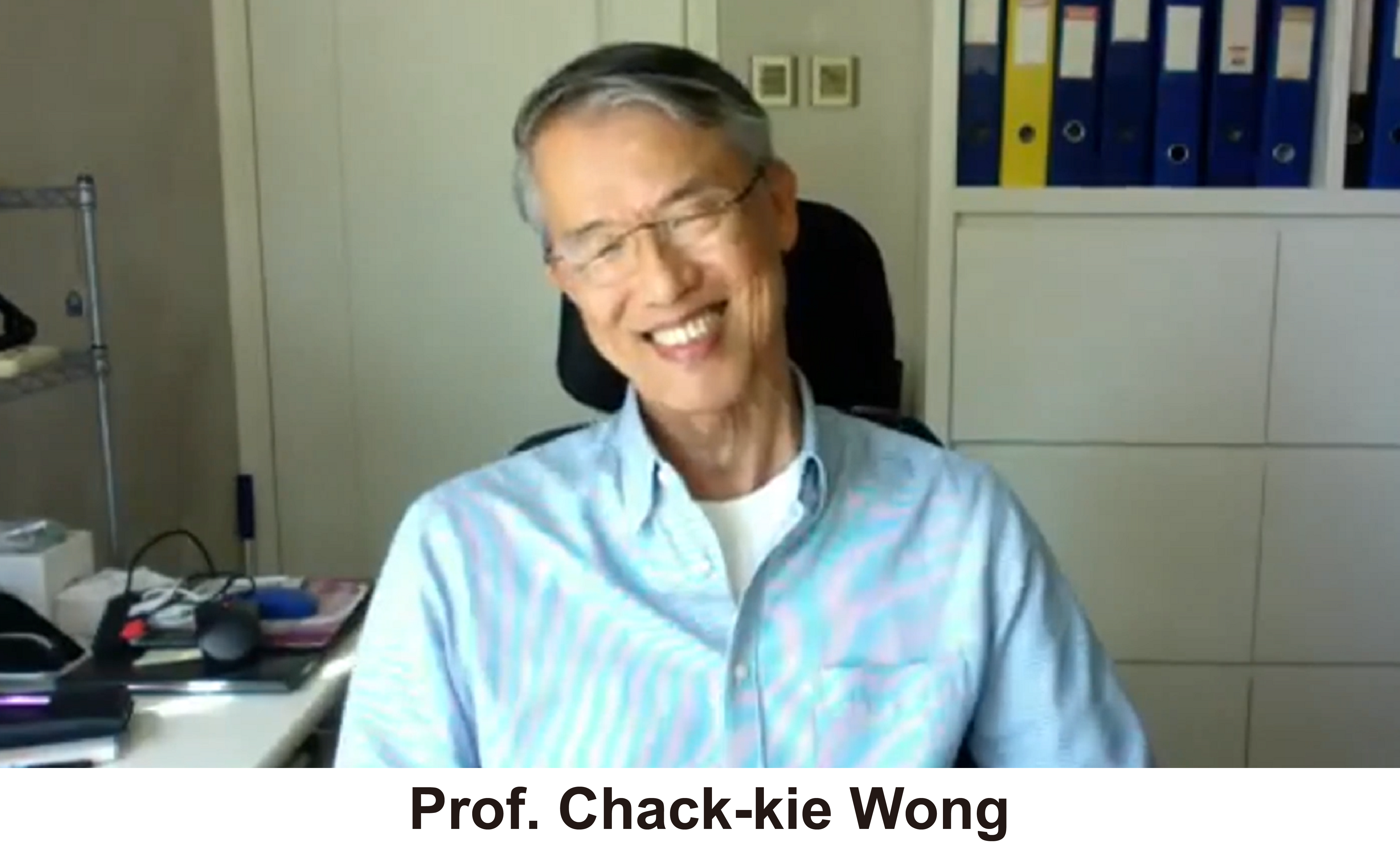 Prof. Chack-kie Wong
Prof. Chack-kie Wong
Honorary Senior Research Fellow, HKIAPS, CUHK |
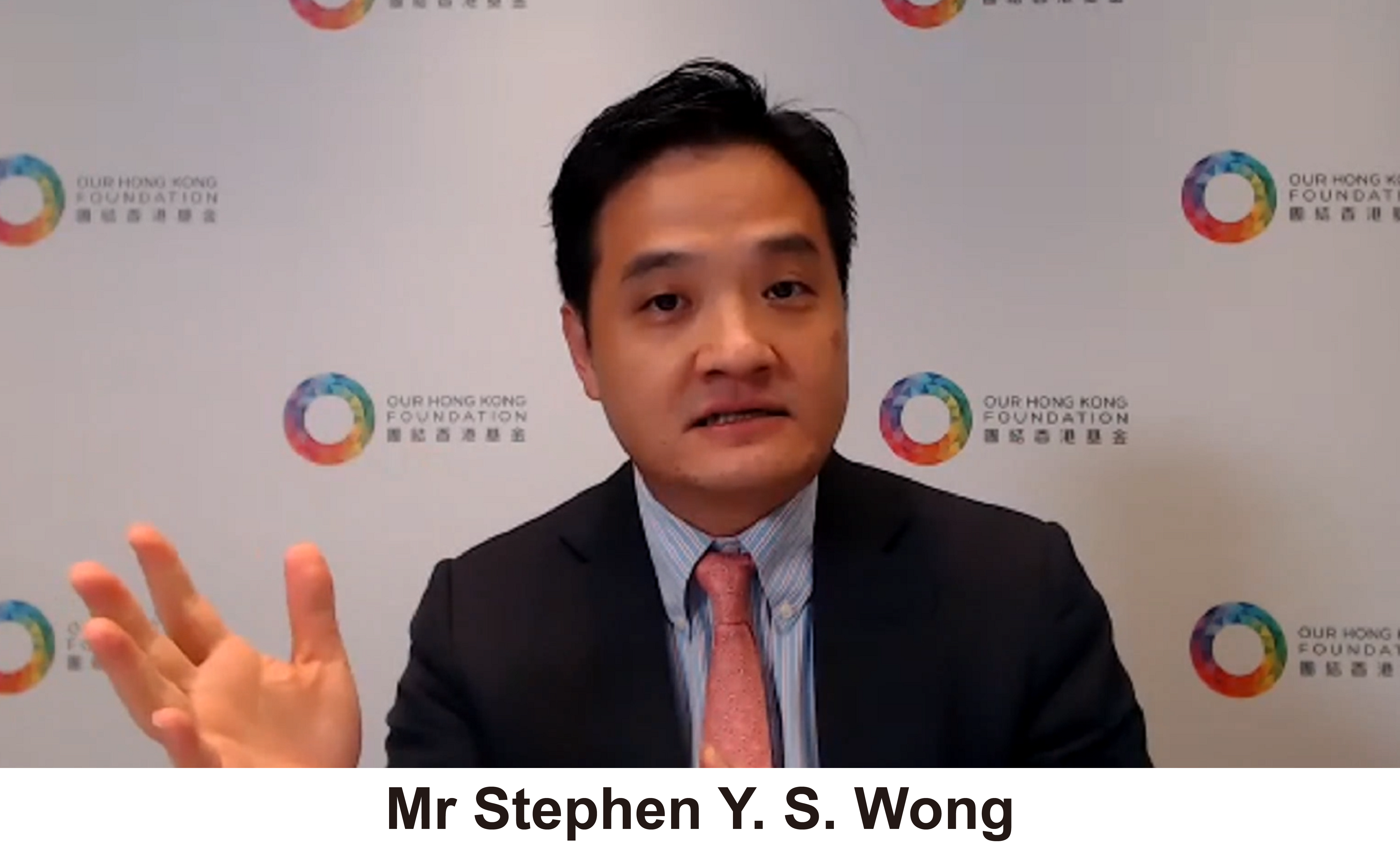 Mr Stephen Y. S. Wong
Mr Stephen Y. S. Wong
Deputy Executive Director and Head of Public Policy Institute, Our Hong Kong Foundation |
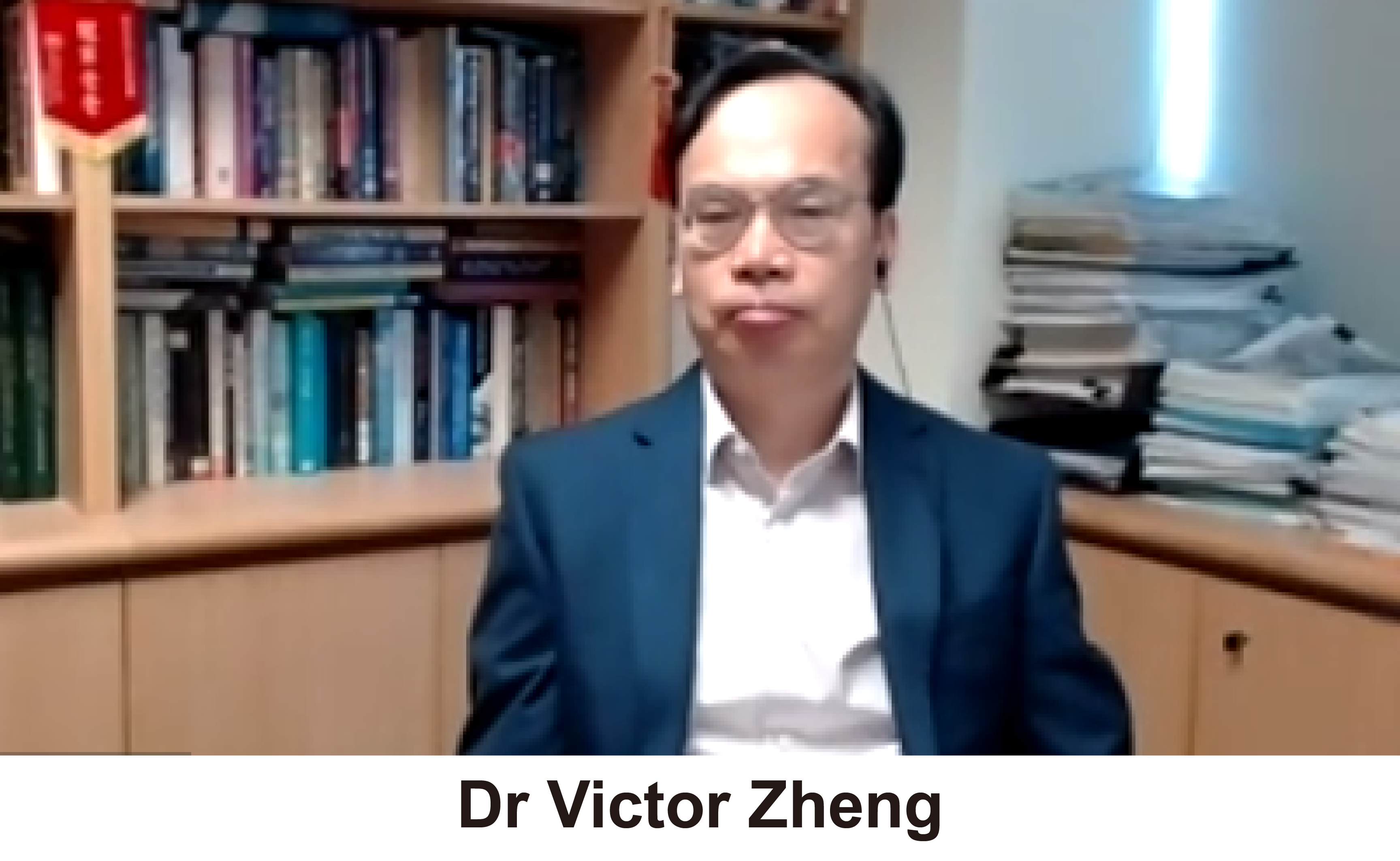 Dr Victor Zheng
Dr Victor Zheng
Associate Director (Executive), HKIAPS, CUHK |
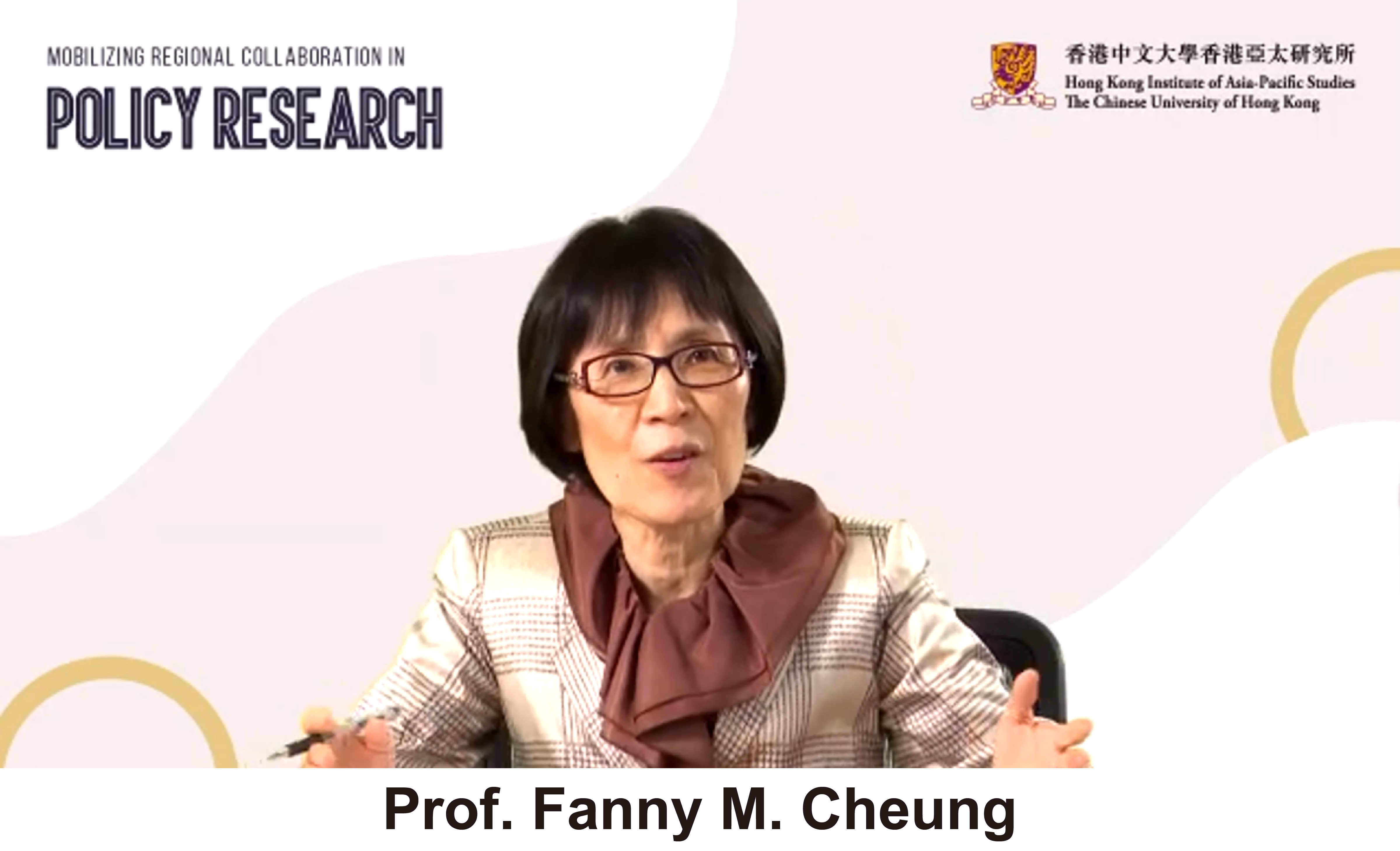 Prof. Fanny M. Cheung (Moderator)
Prof. Fanny M. Cheung (Moderator)
Senior Advisor, Faculty of Social Science and HKIAPS, CUHK |
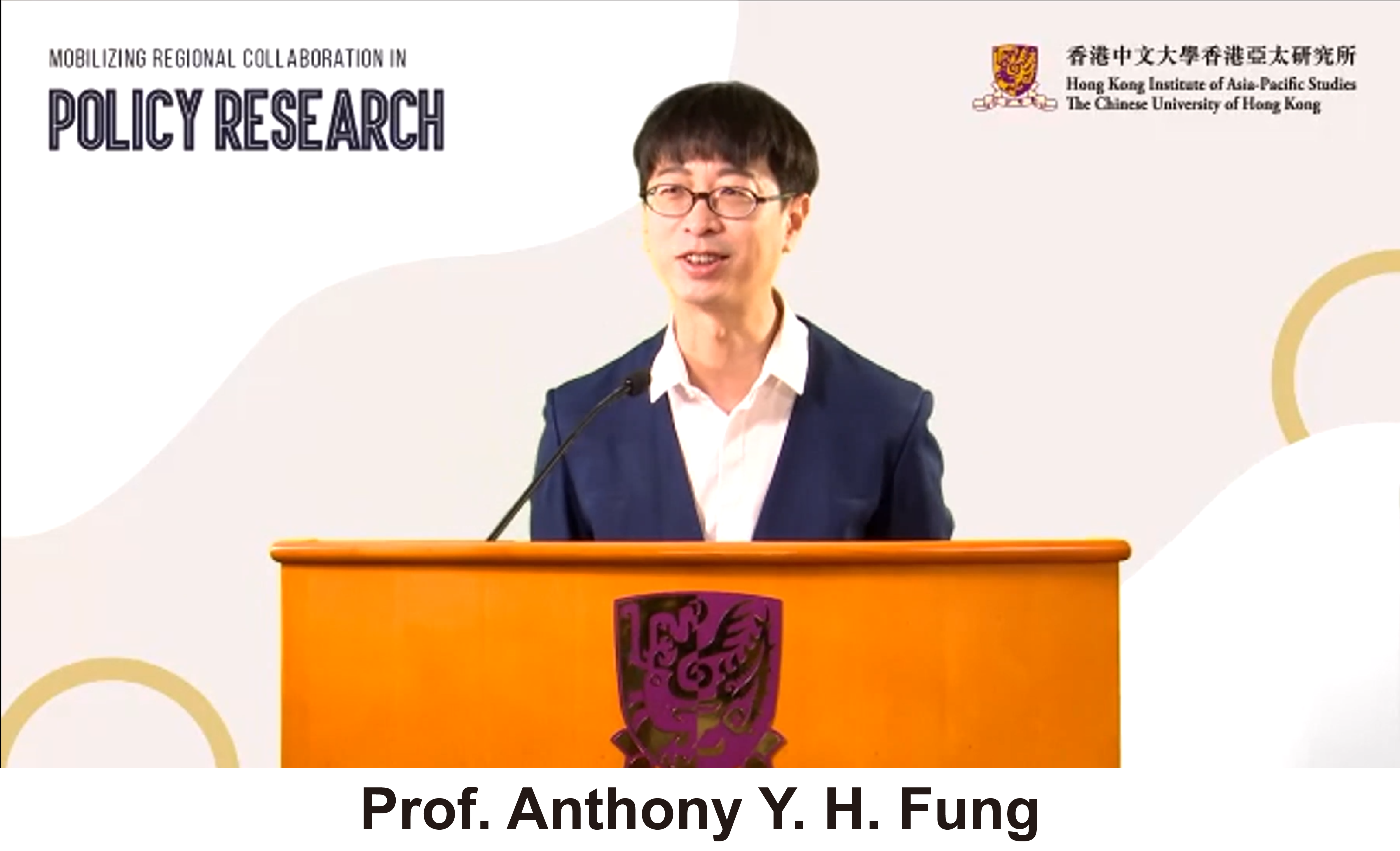 Prof. Anthony Y. H. Fung (Moderator)
Prof. Anthony Y. H. Fung (Moderator)
Director, HKIAPS, CUHK |
|
Evidence-informed policies will not only bring solutions to current problems,
but will also indicate directions for future development.
Governments all over the world are facing similar social issues.
Through comparative studies and regional collaboration,
knowledge and information can be shared and enhanced.
Policy formulation and academic research can together create an interactive process. All of us can contribute to this process by providing input from academic research to policy formation, or alternatively, assessing the societal impacts of public policies. HKIAPS celebrated its 30th anniversary in 2020. This conference called attention to the institute’s unremitting efforts over the past three decades to link up different parts of society to engage in the accumulation of knowledge and scholarly exchanges. The conference also accentuated the importance of bridging the endeavours of academic research, policymaking, and making contributions to society. The conference consisted of three keynote sessions, three panel sessions, and a roundtable discussion session. Prof. Danny Quah shared his three concerns about how research can remain open and international, what the trade-off coefficients between scientific openness and national security are, and how economic competitiveness changes the calculus of research. In the following panel session, Prof. Michael Z. Song illustrated the relationships of friends and enemies from the viewpoint of domestic and international trade; Prof. Peter Beattie elaborated how political psychology can inform public outreach to gain support for systemic transformations; and Prof. Calvin Chung highlighted how a politics of scale shapes the construction of global city-regions, and the associated challenges that lie ahead. In the second keynote session, Prof. Jane Falkingham drew out the implications for public policy of demographic changes in the Asia-Pacific region, focusing in particular on changes in family structure, migration, and ageing. The panel session began with Prof. Tai-lok Lui examining how to enrich talk about generational differences; this was followed by Prof. Yuying Tong’s analysis of education and home ownership among young adults in Hong Kong in 1991–2016; lastly, Prof. Sealing Cheng discussed how the experiences of asylum-seekers and refugees in Hong Kong could contribute to global dialogues about refugee-related interventions. In the third keynote session, Prof. Fang Cai discussed how the interdisciplinary research of Chinese scholars has contributed to policymaking in the economic arena. First, China’s economic reforms and the opening-up phenomenon are a multifaceted process that is creating demand for interdisciplinary research. Second, Prof. Cai described how Chinese policy researchers have met such a demand by cooperating to combine advice from different scientific areas. Third, Prof. Cai presented cases on how crossing disciplinary boundaries has helped policy researchers to better identify the issues, find real causes, reveal their significance, and enhance effectiveness to influence policy making. Seven discussants from various academic backgrounds joined the roundtable session. Prof. Esther S. C. Ho shared her experiences from conducting an international, longitudinal study of adolescents in Hong Kong (HKLSA); Prof. Mei-po Kwan examined the relationship between sustainable cities and policy research; Prof. Tim Summers elaborated the relationship between international politics and policy research; Prof. Annie K. L. Tam, the former Permanent Secretary for Labour and Welfare in the HKSAR Government, analysed welfare policy making in Hong Kong; Prof. Chack-kie Wong shared some research notes concerning poverty alleviation and social protection; Mr Stephen Wong illustrated the role of think tanks in policy design; and Dr Victor Zheng elaborated on the use of surveys to track public opinion to inform policies. The conference was attended by around 100 participants online.■ |
